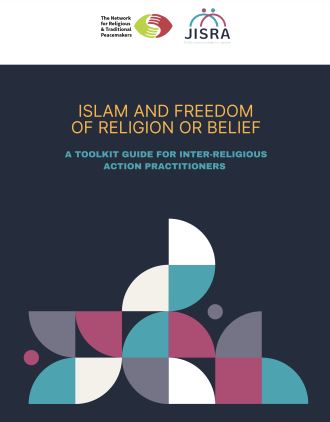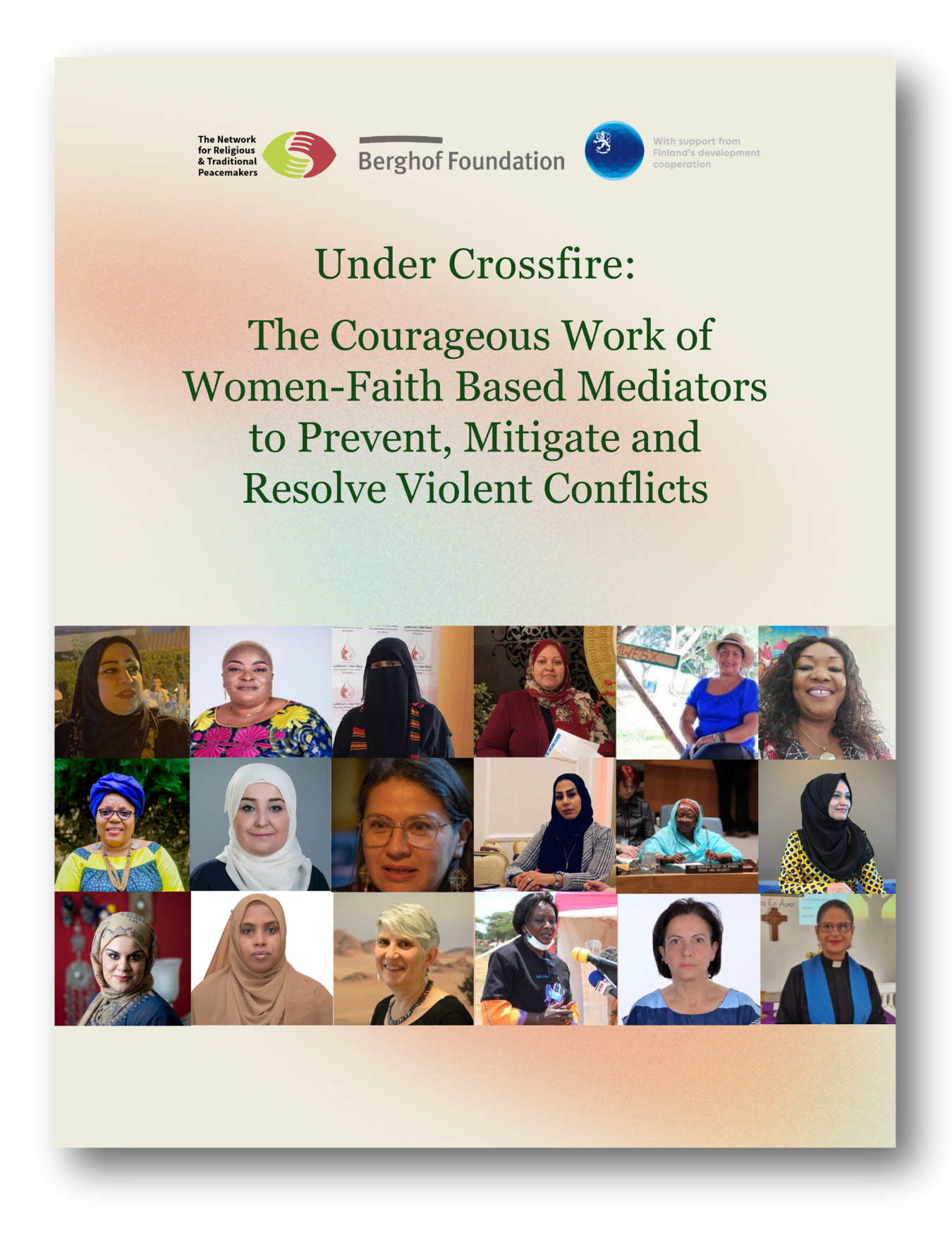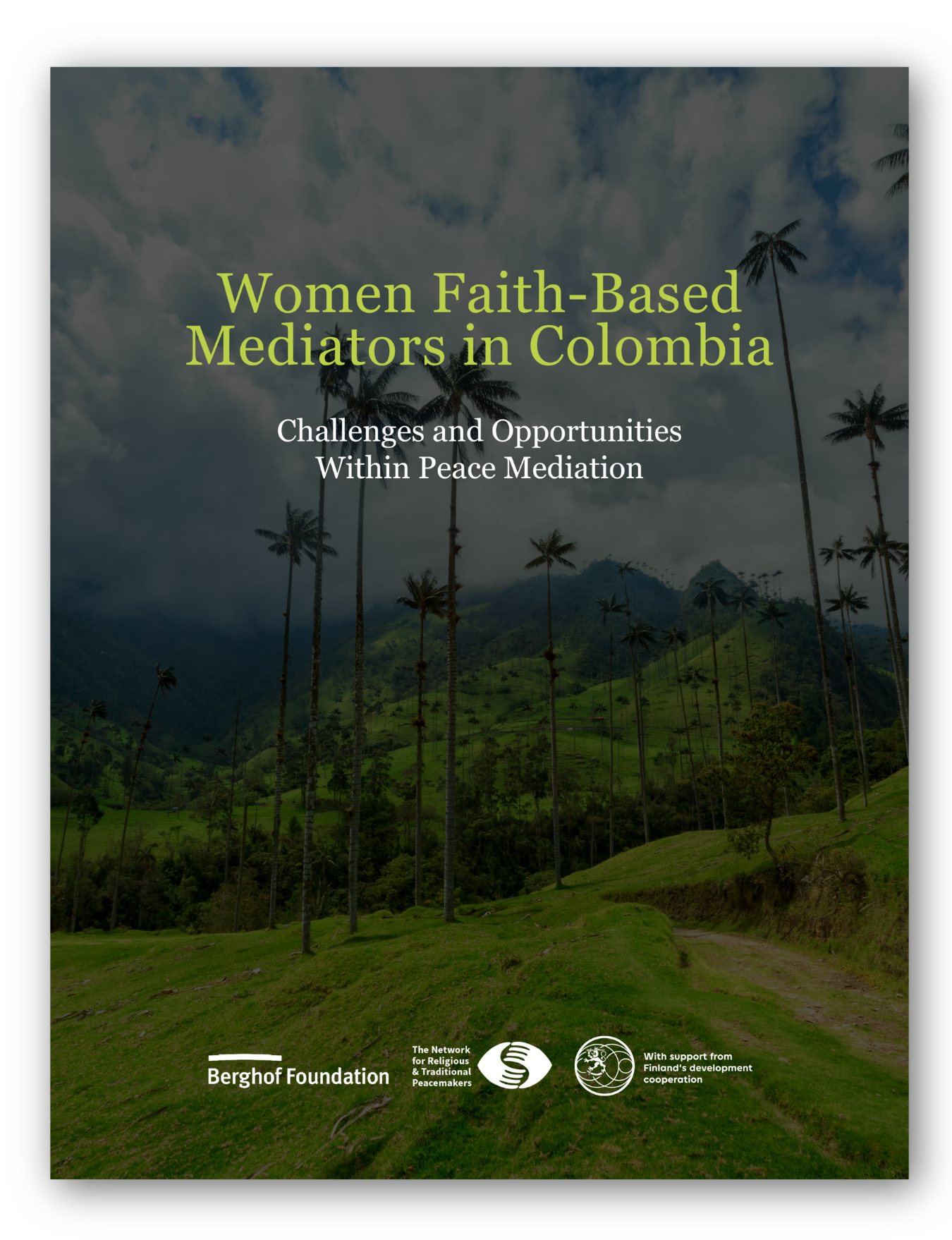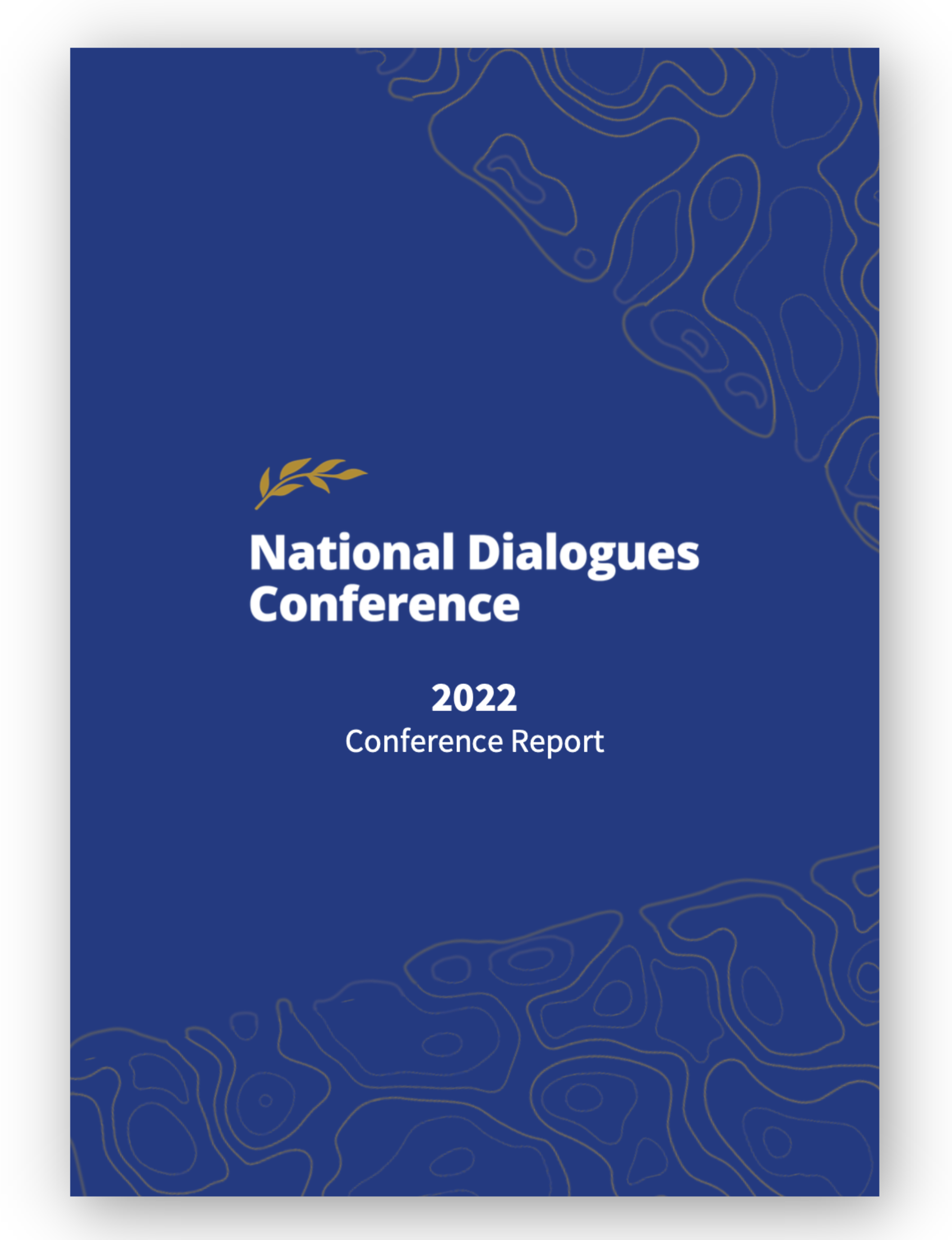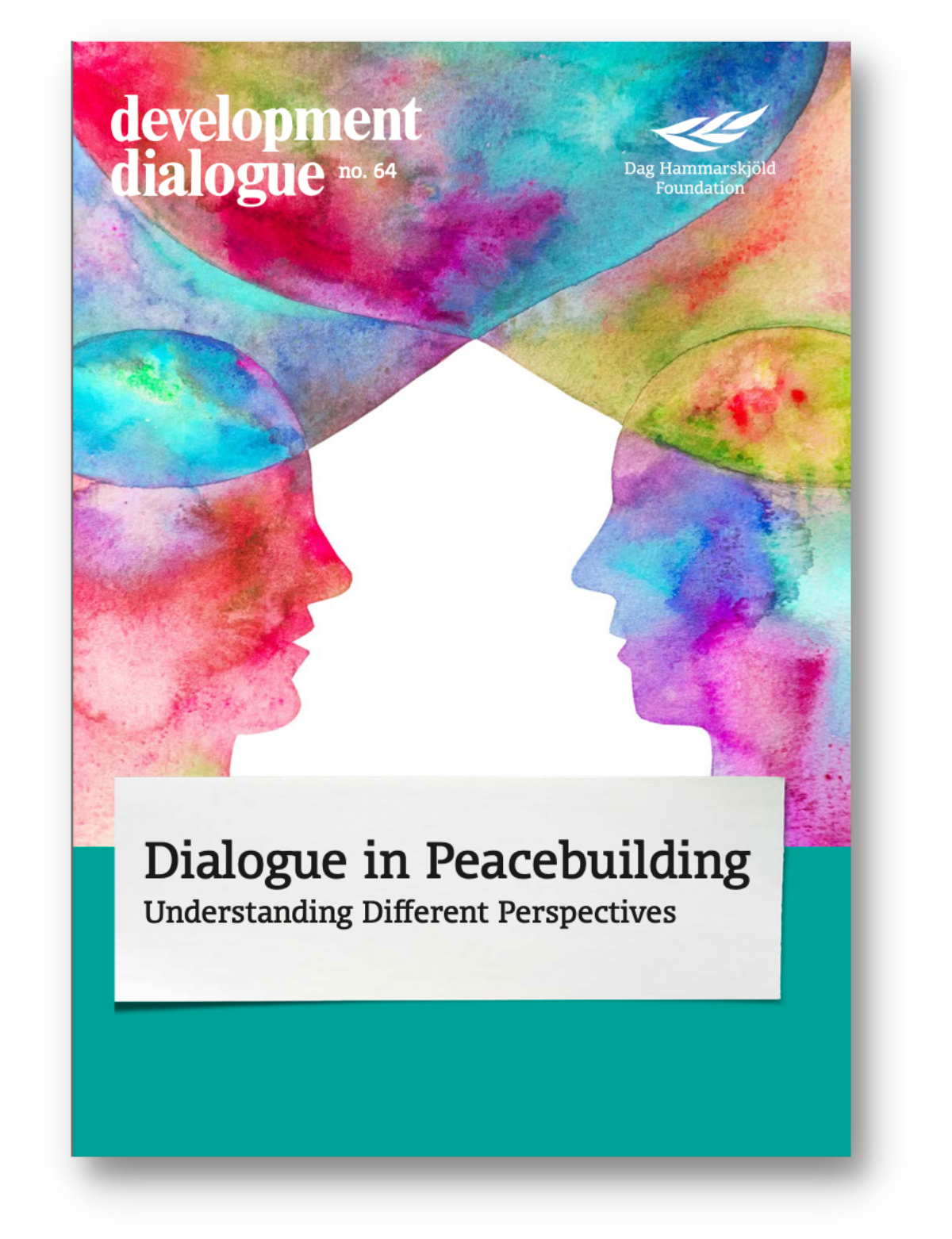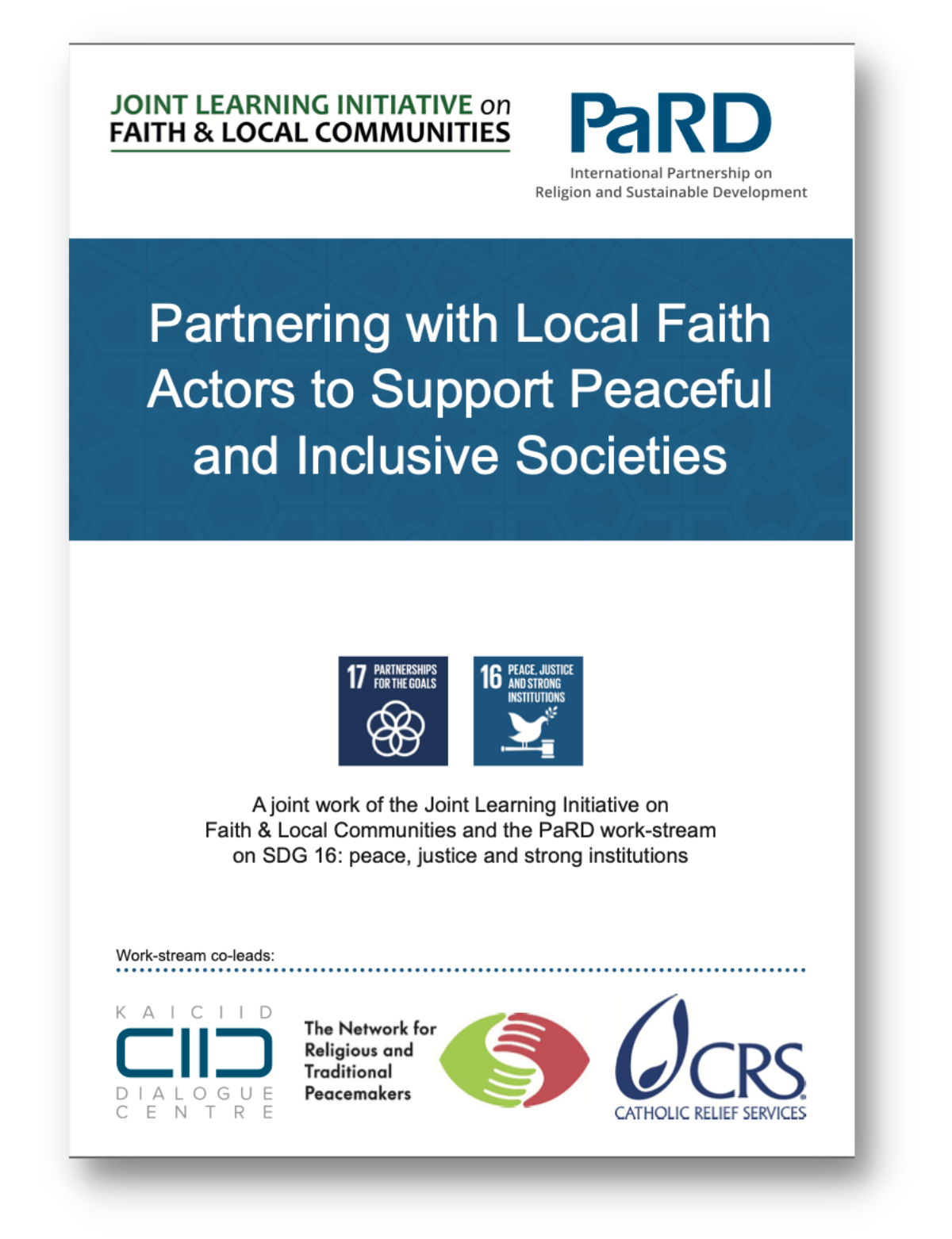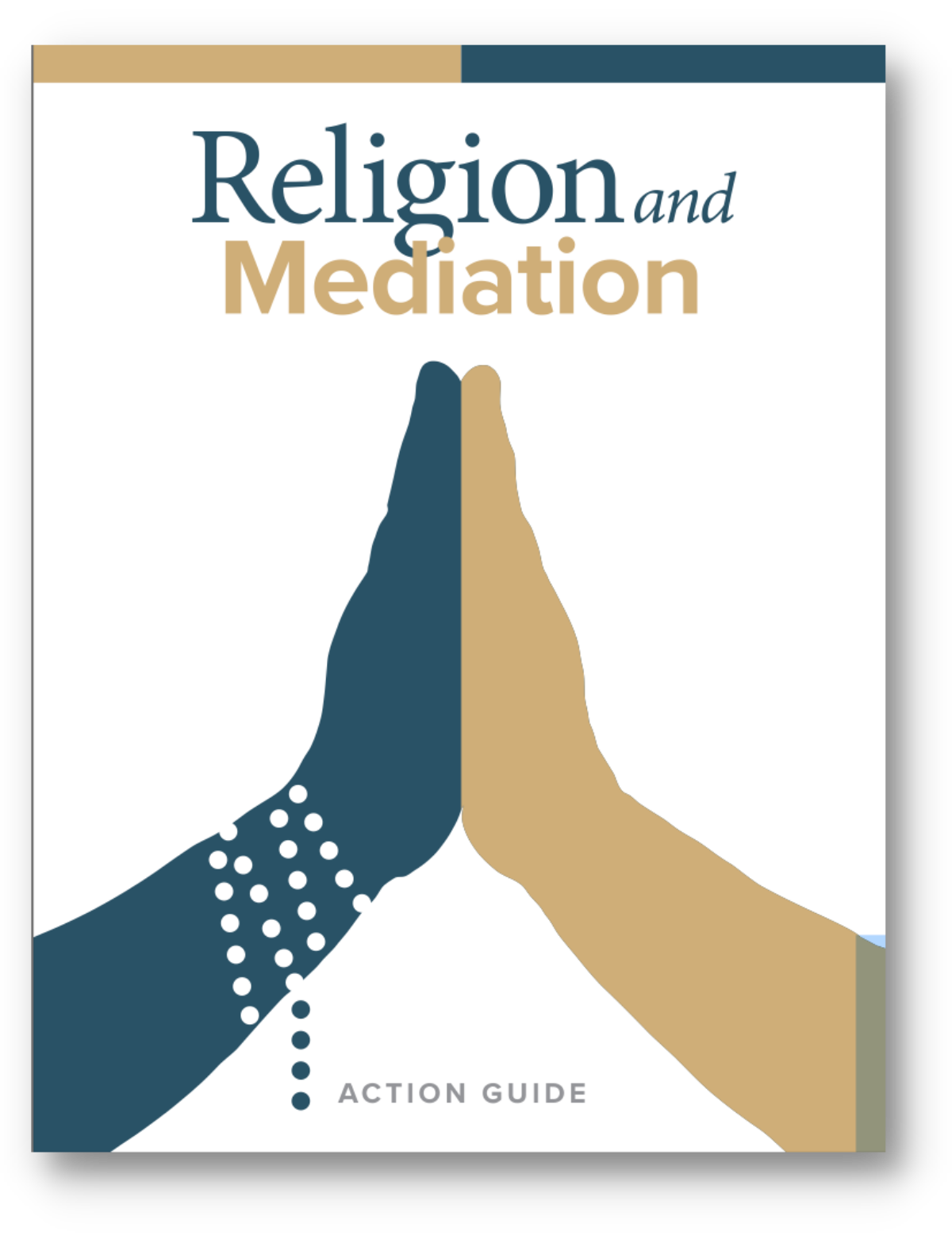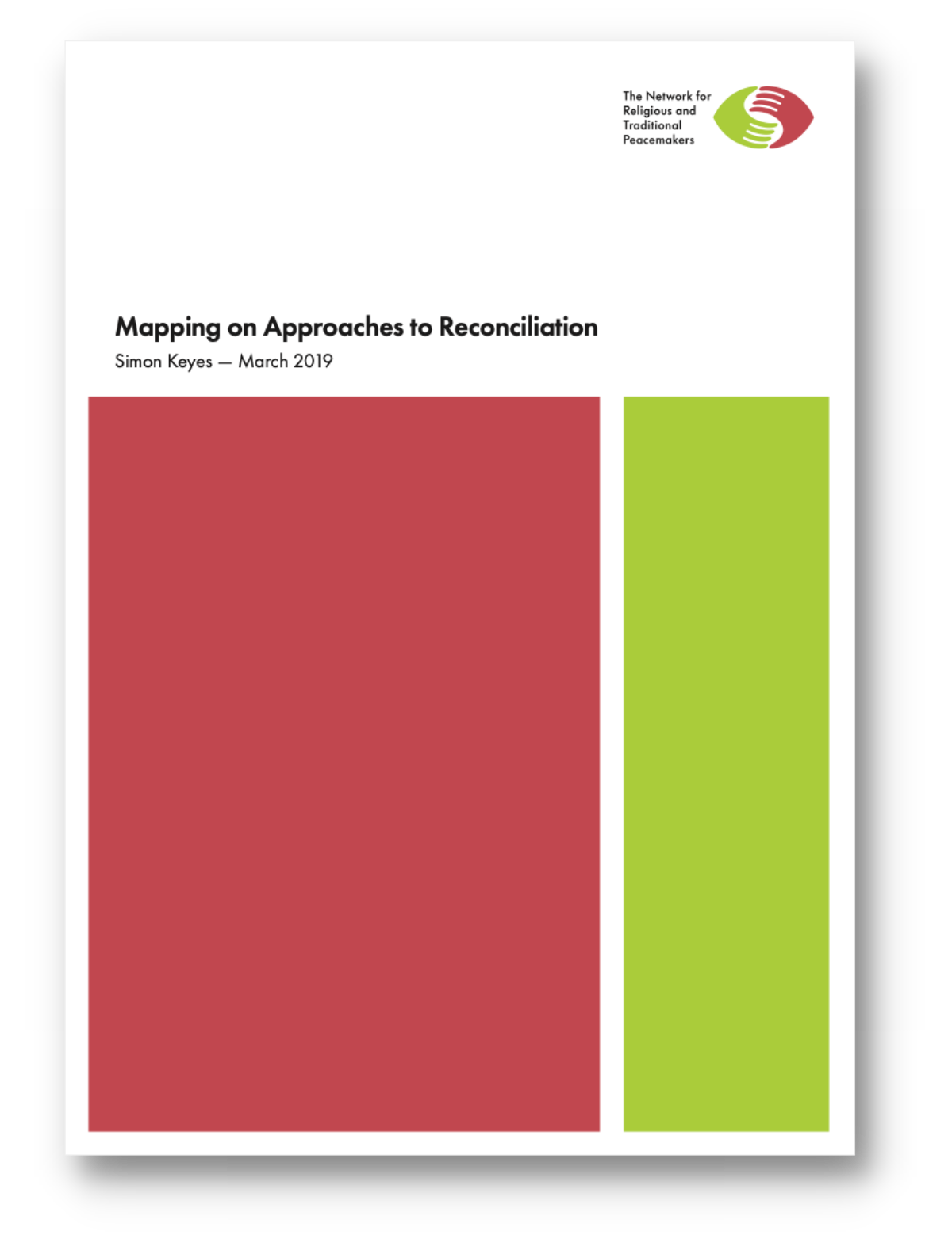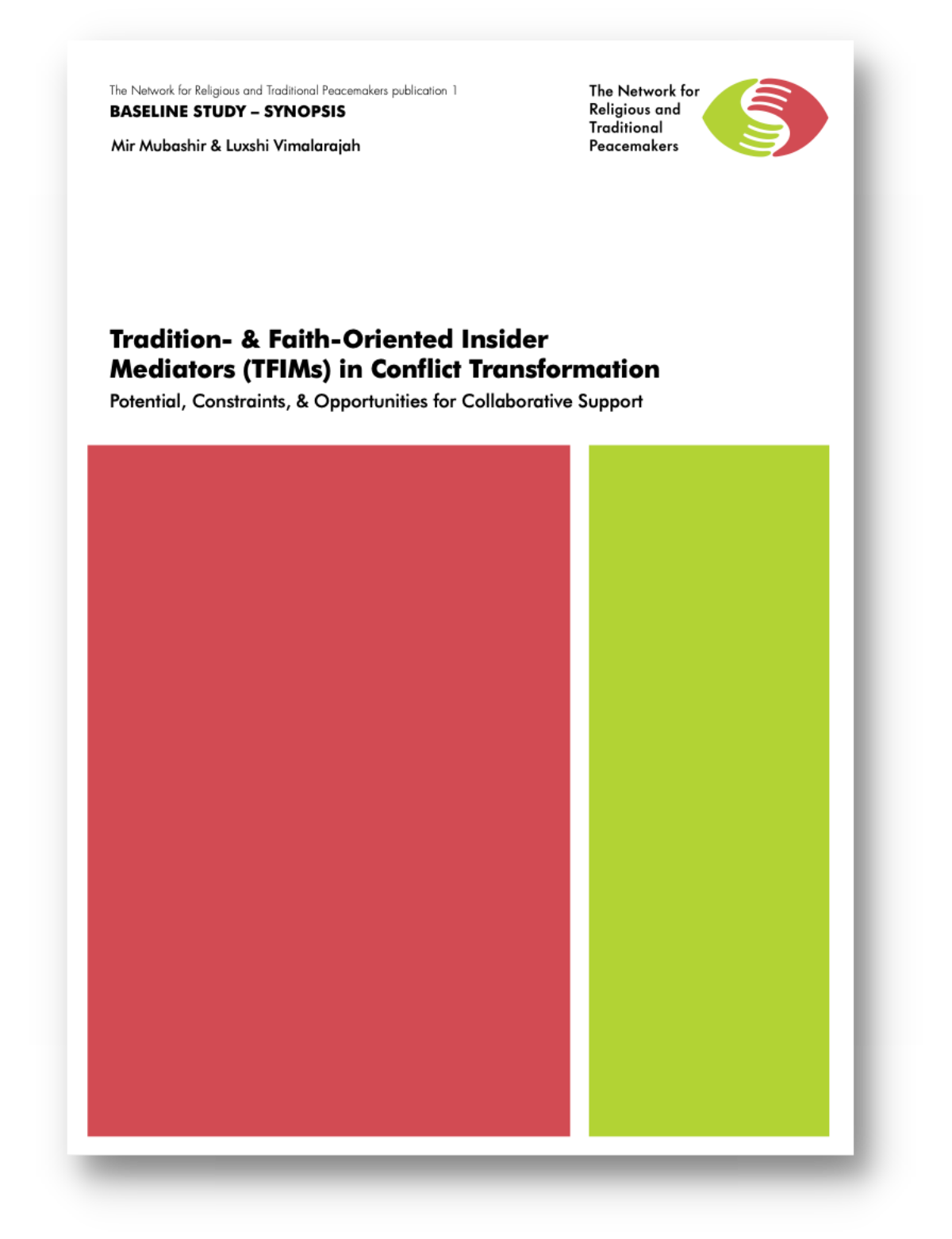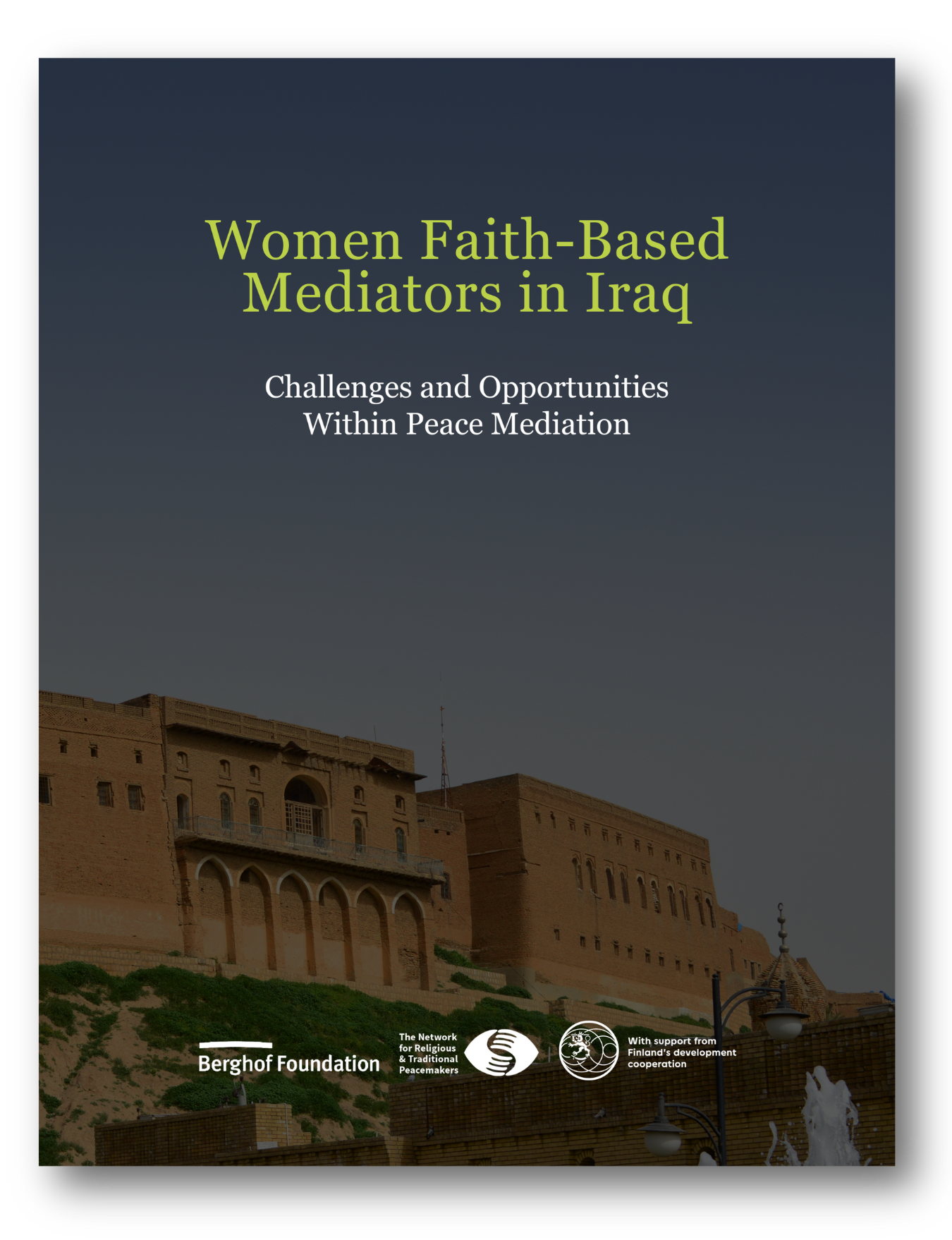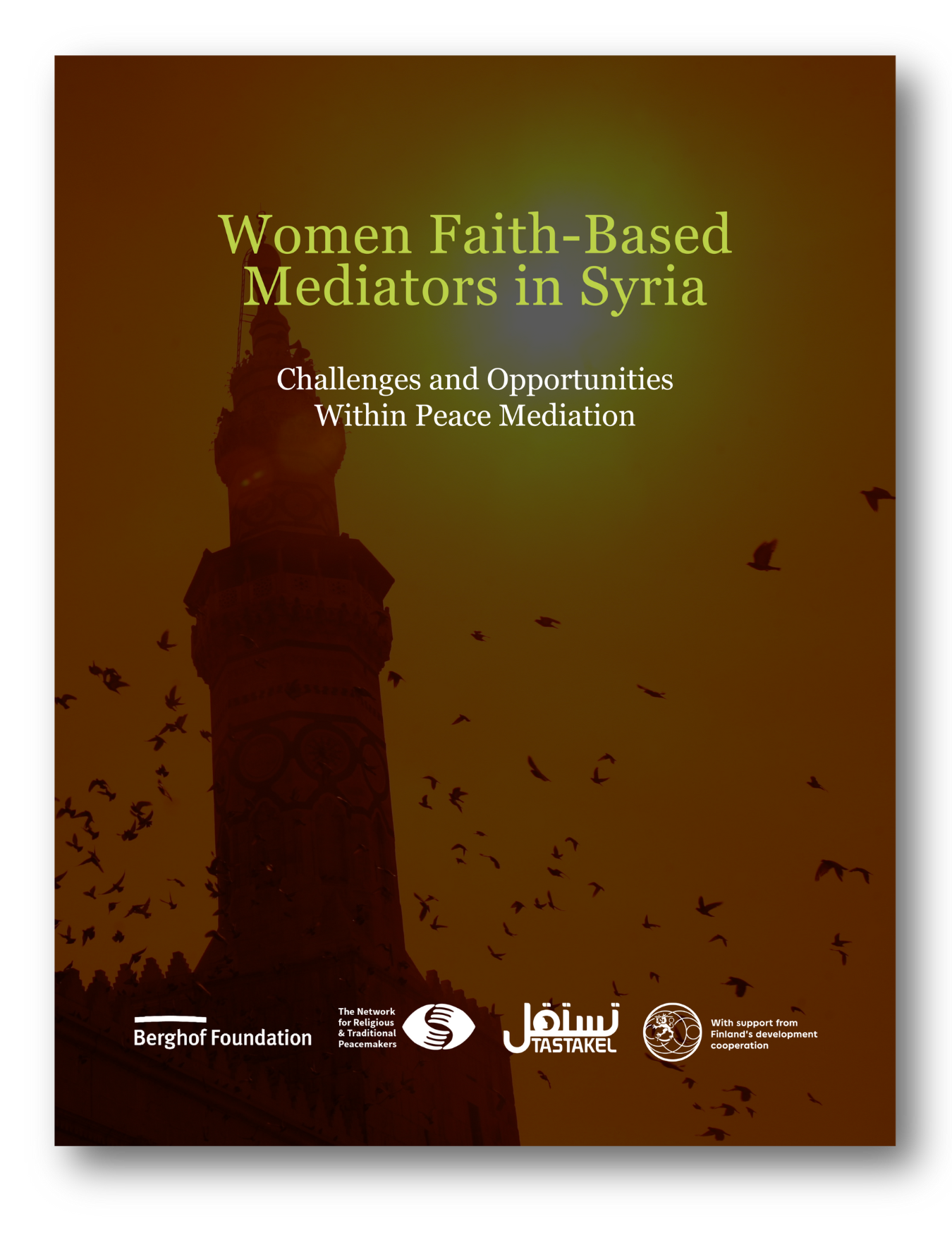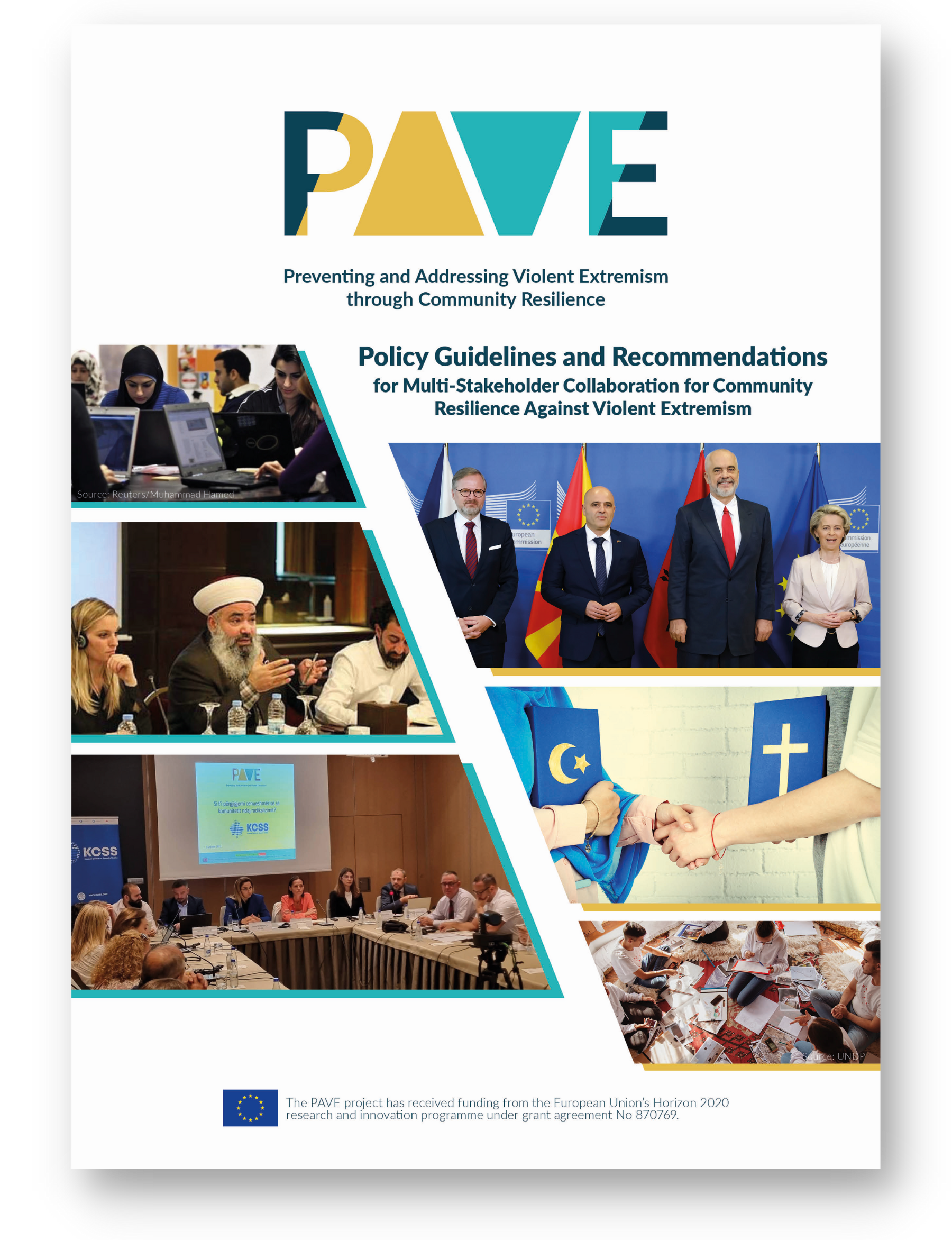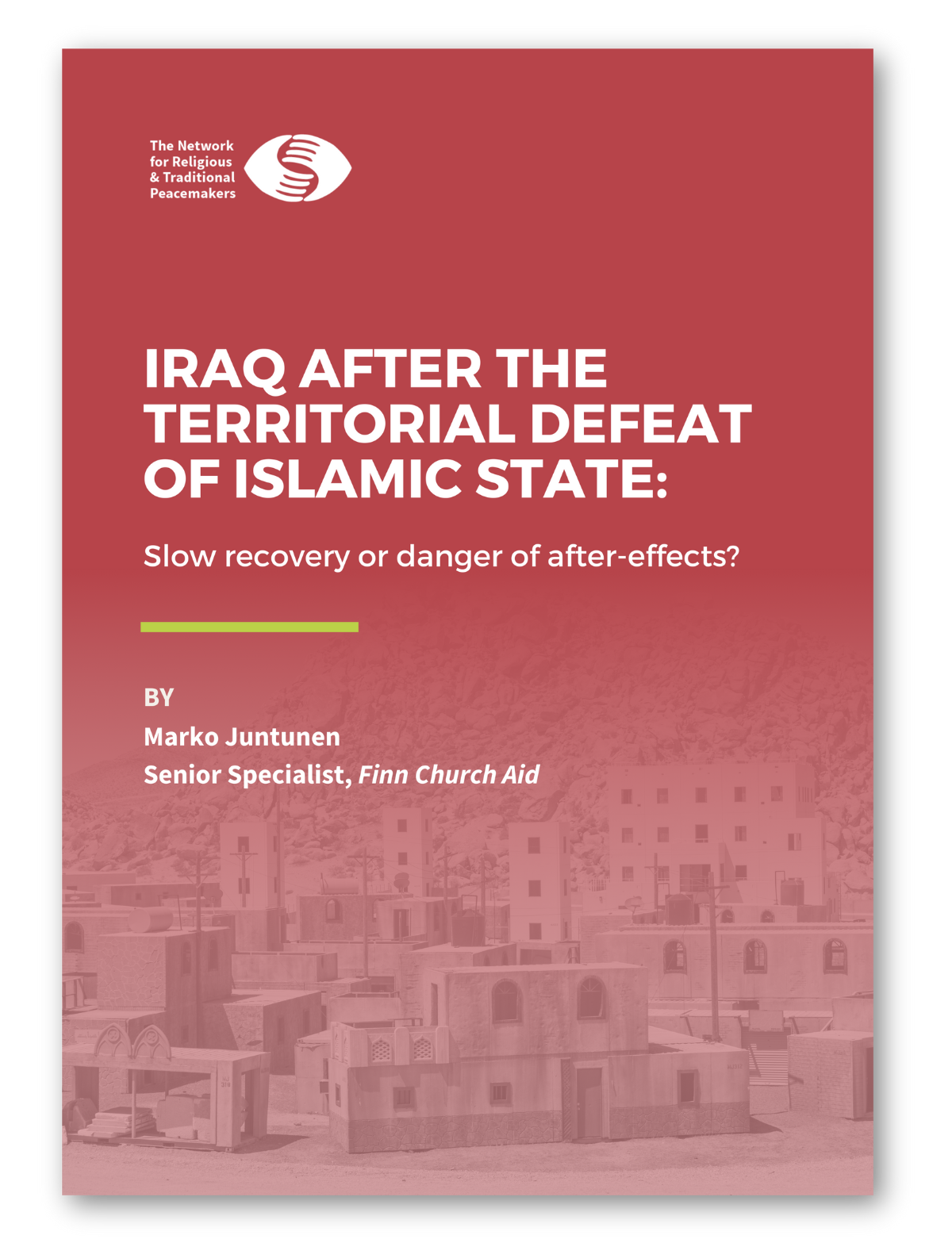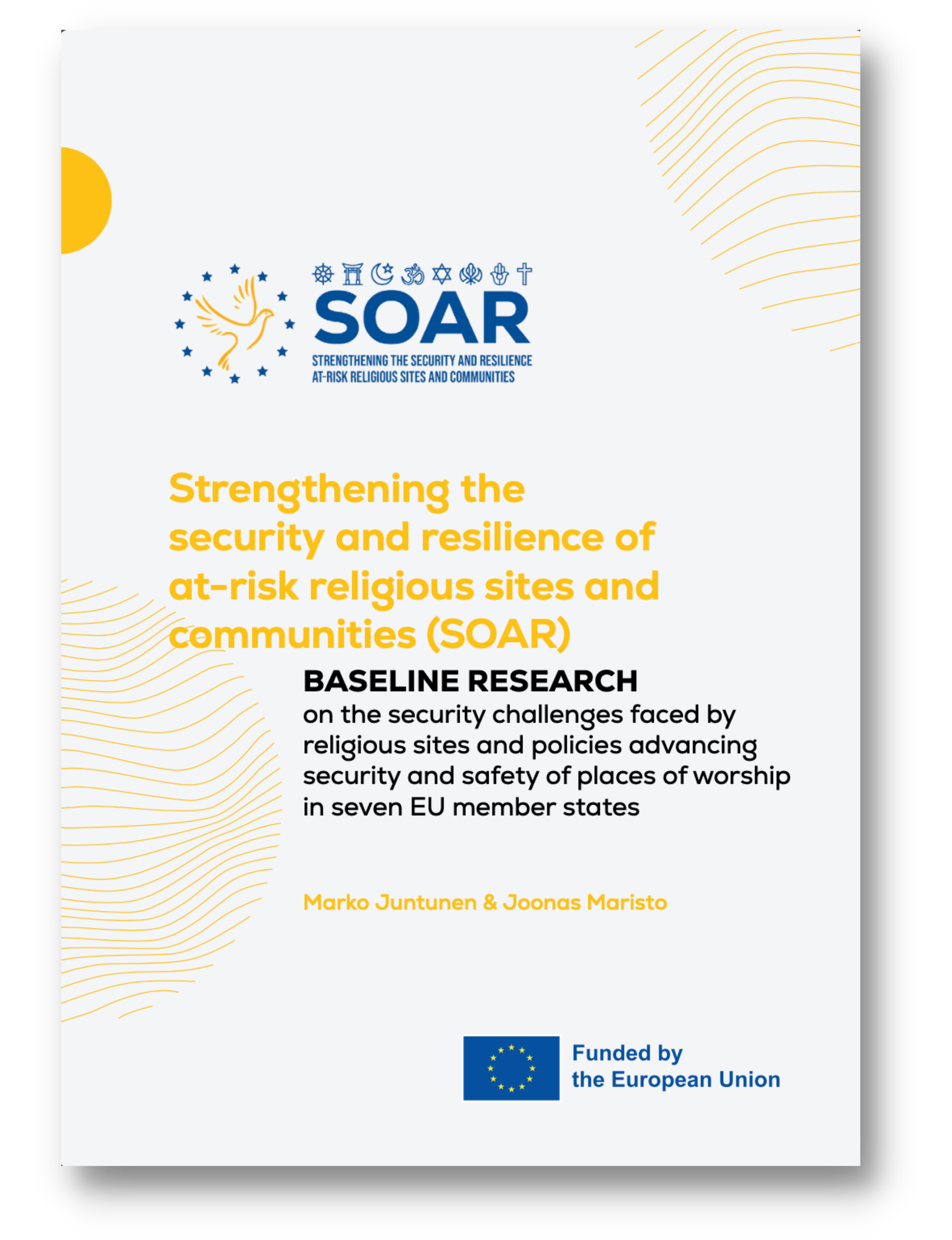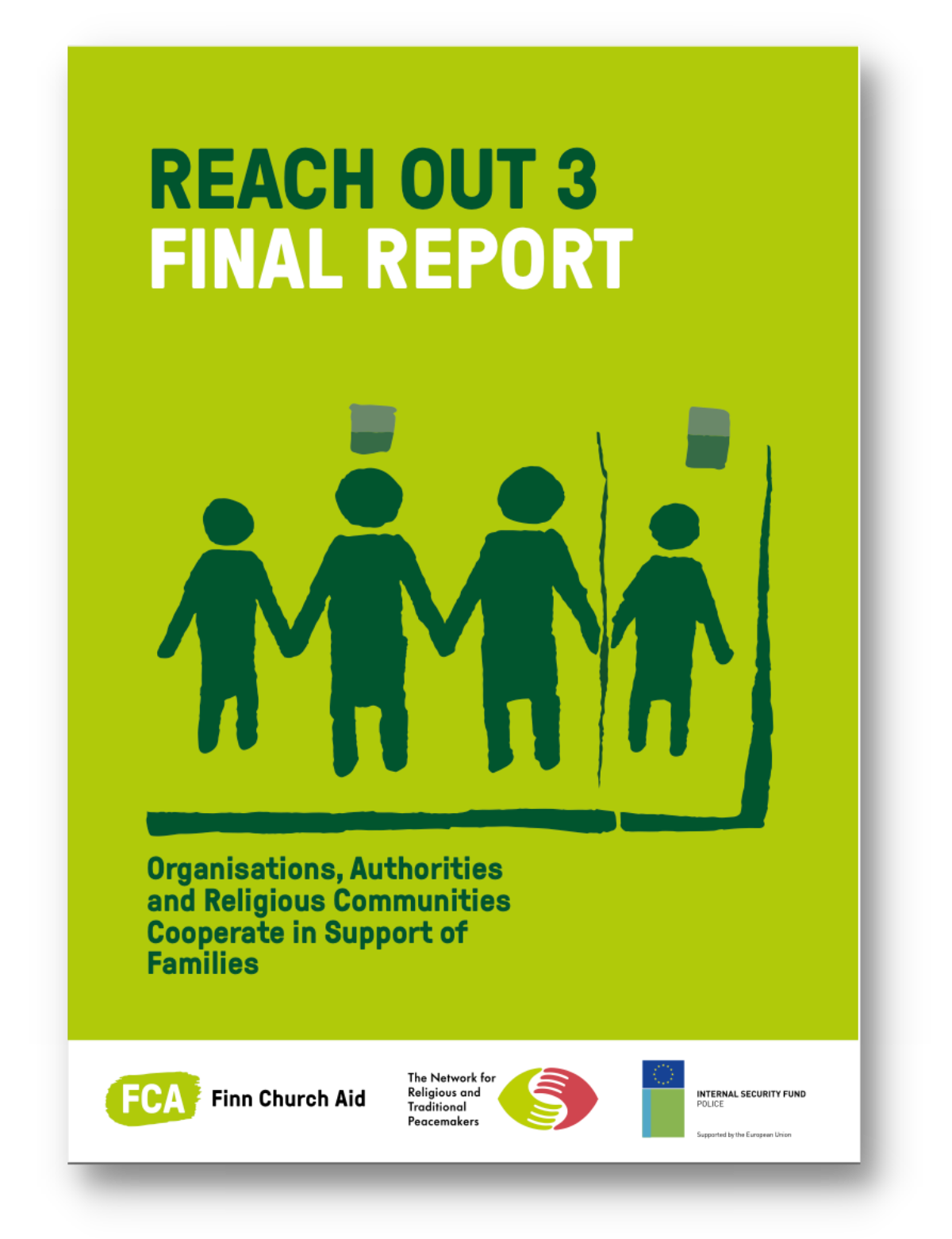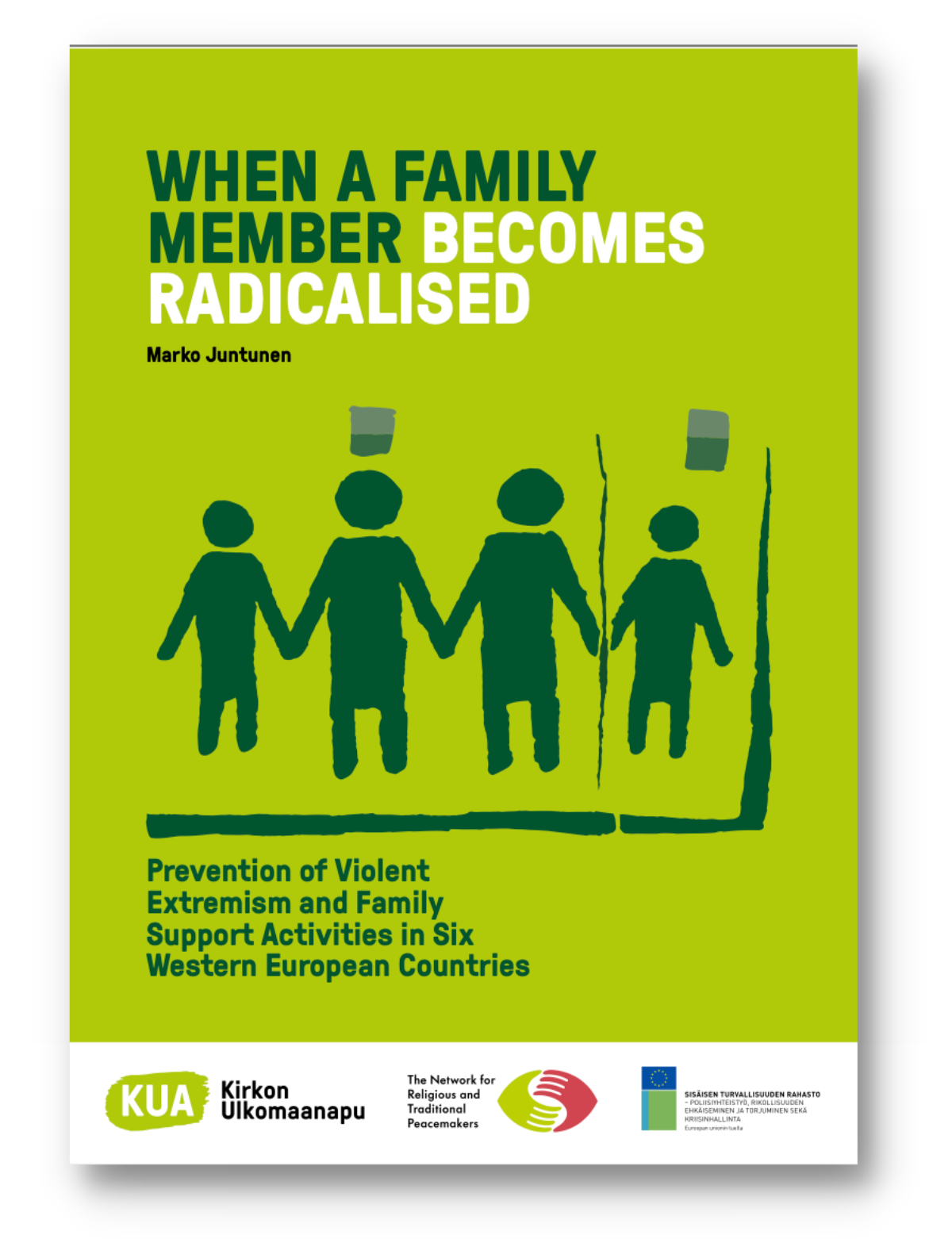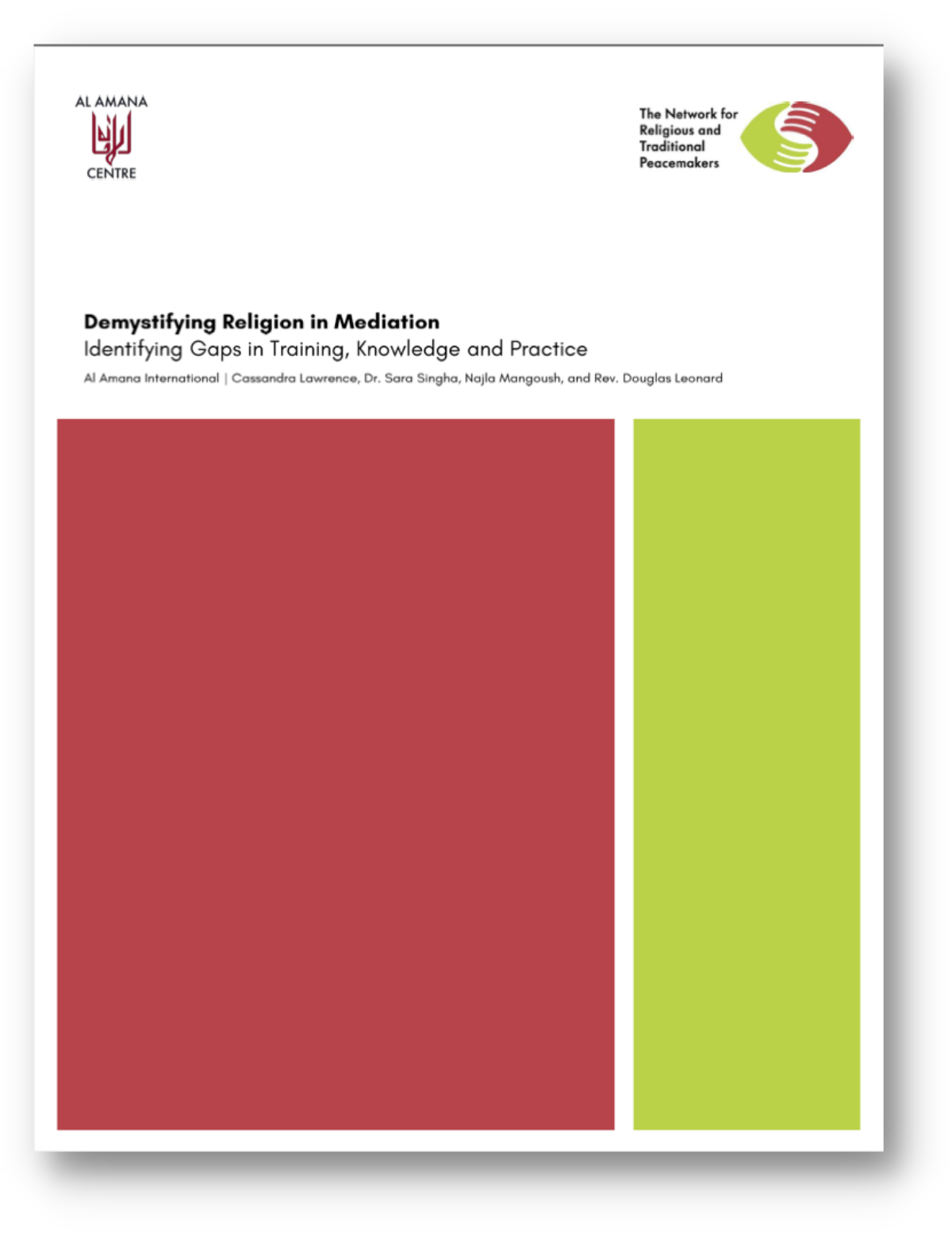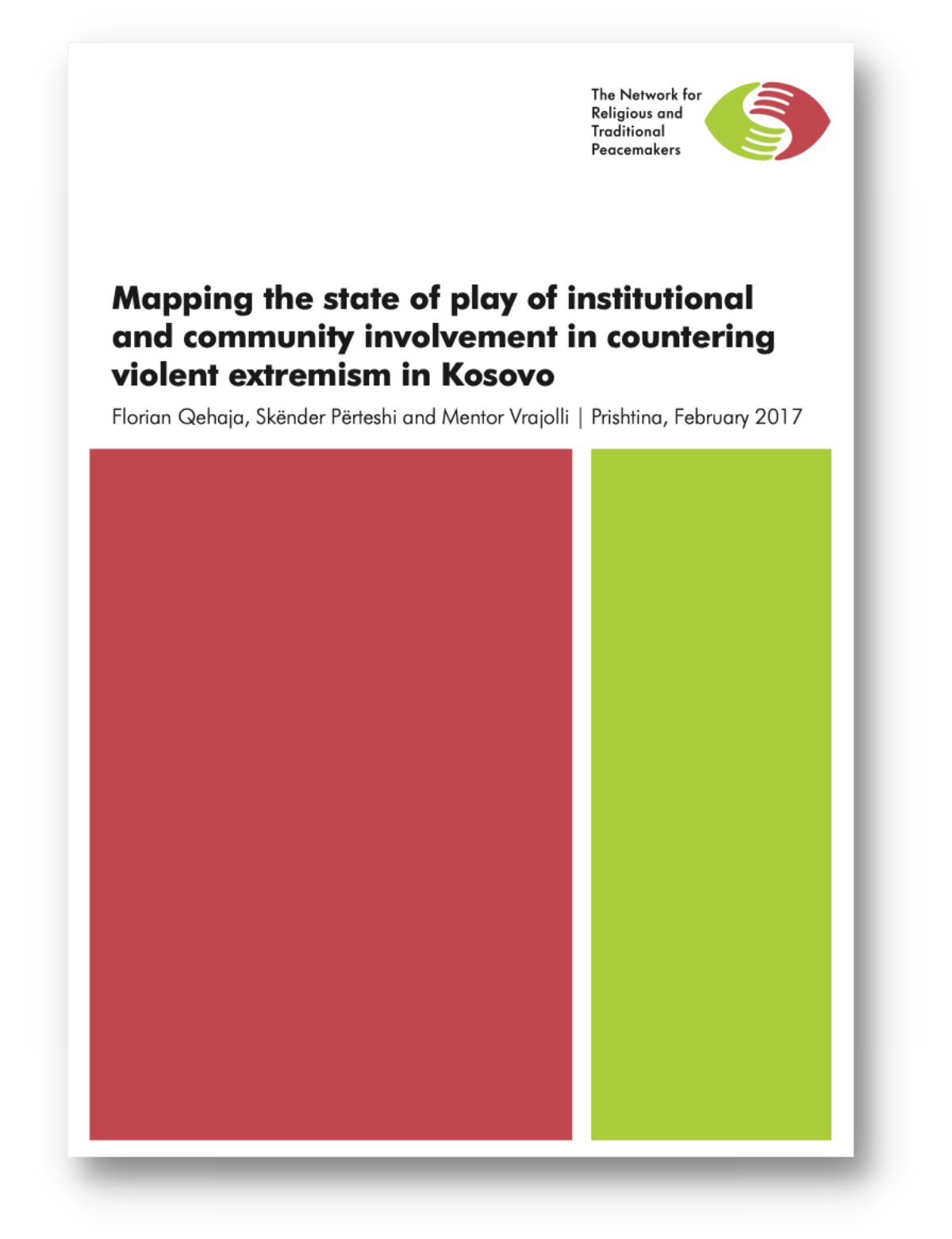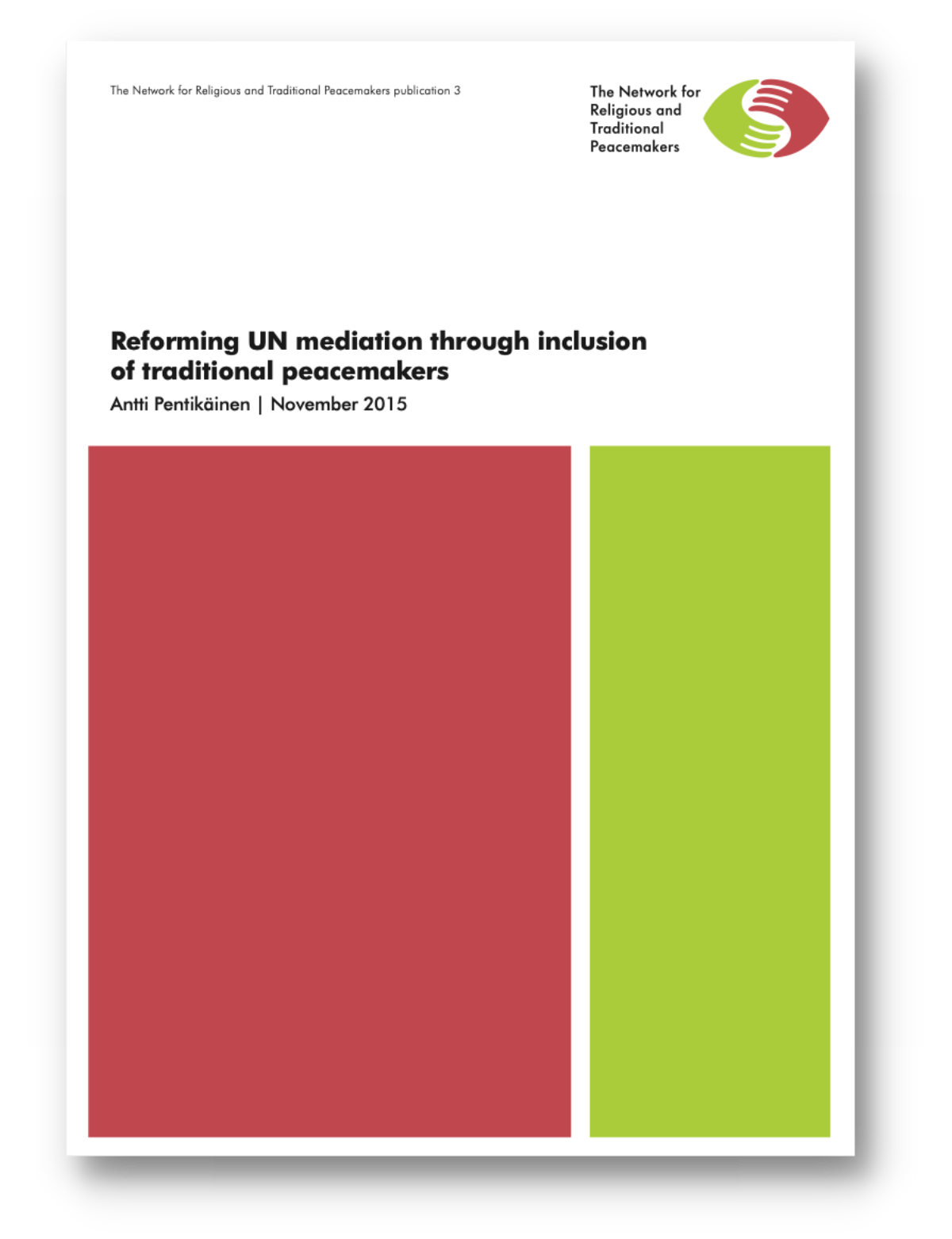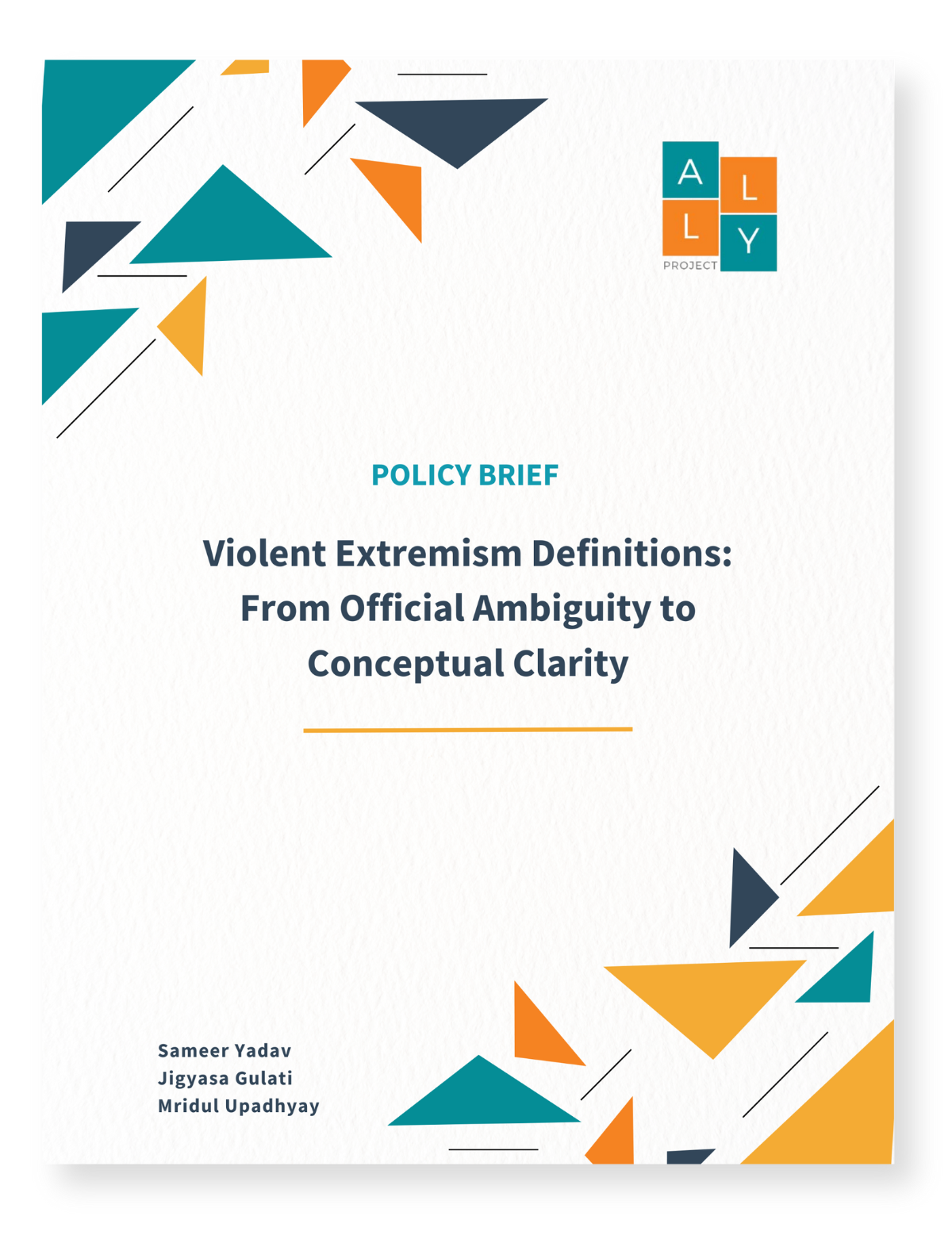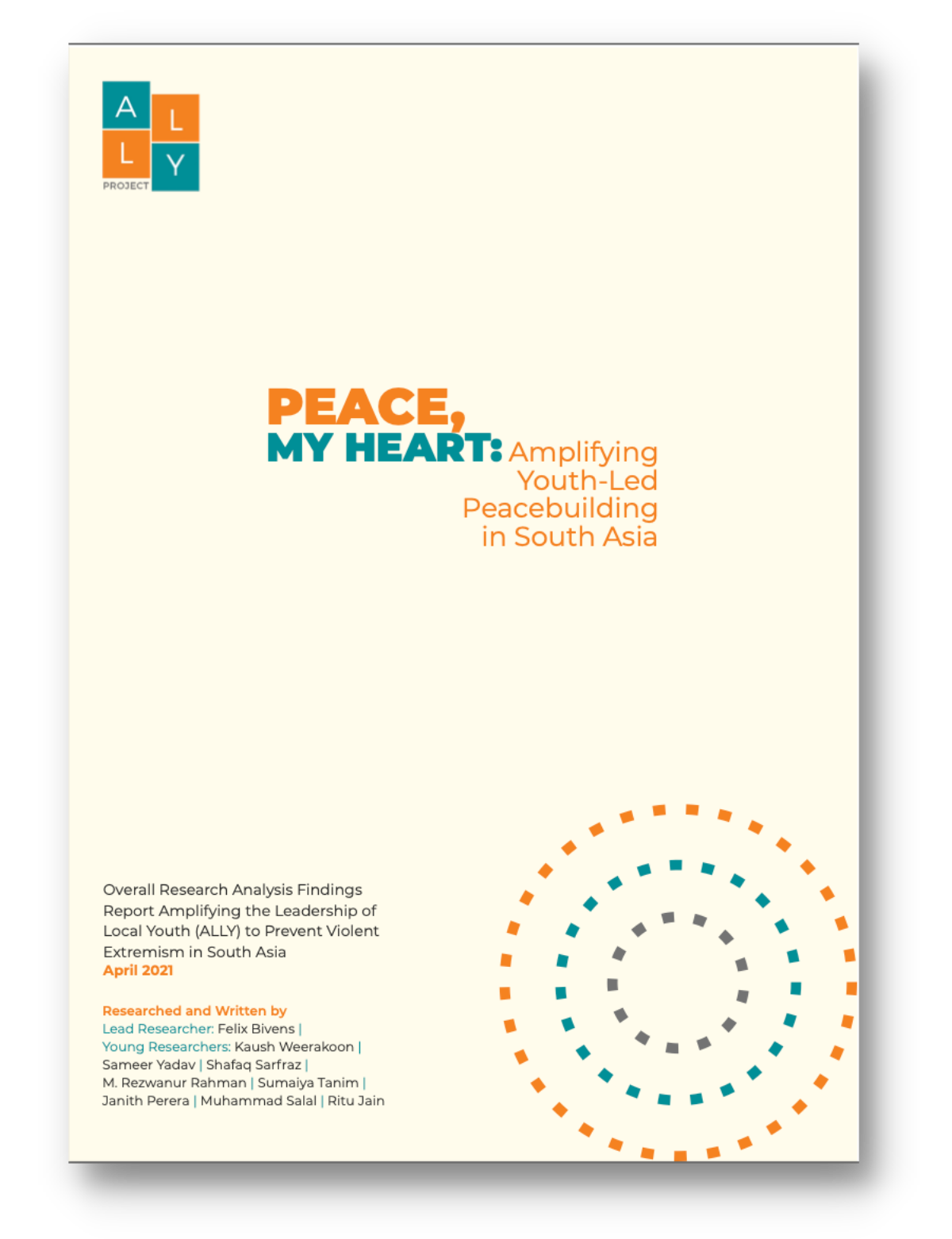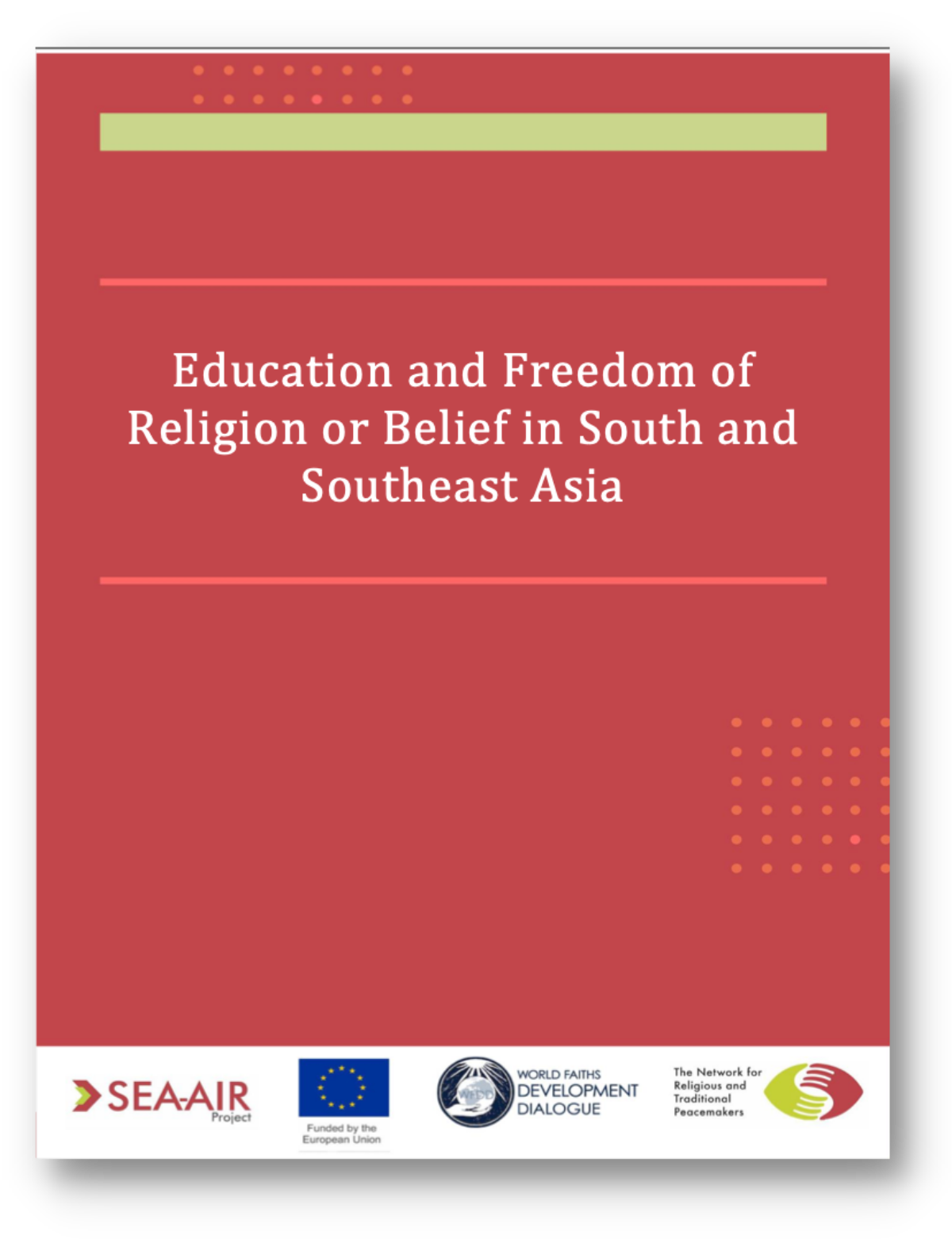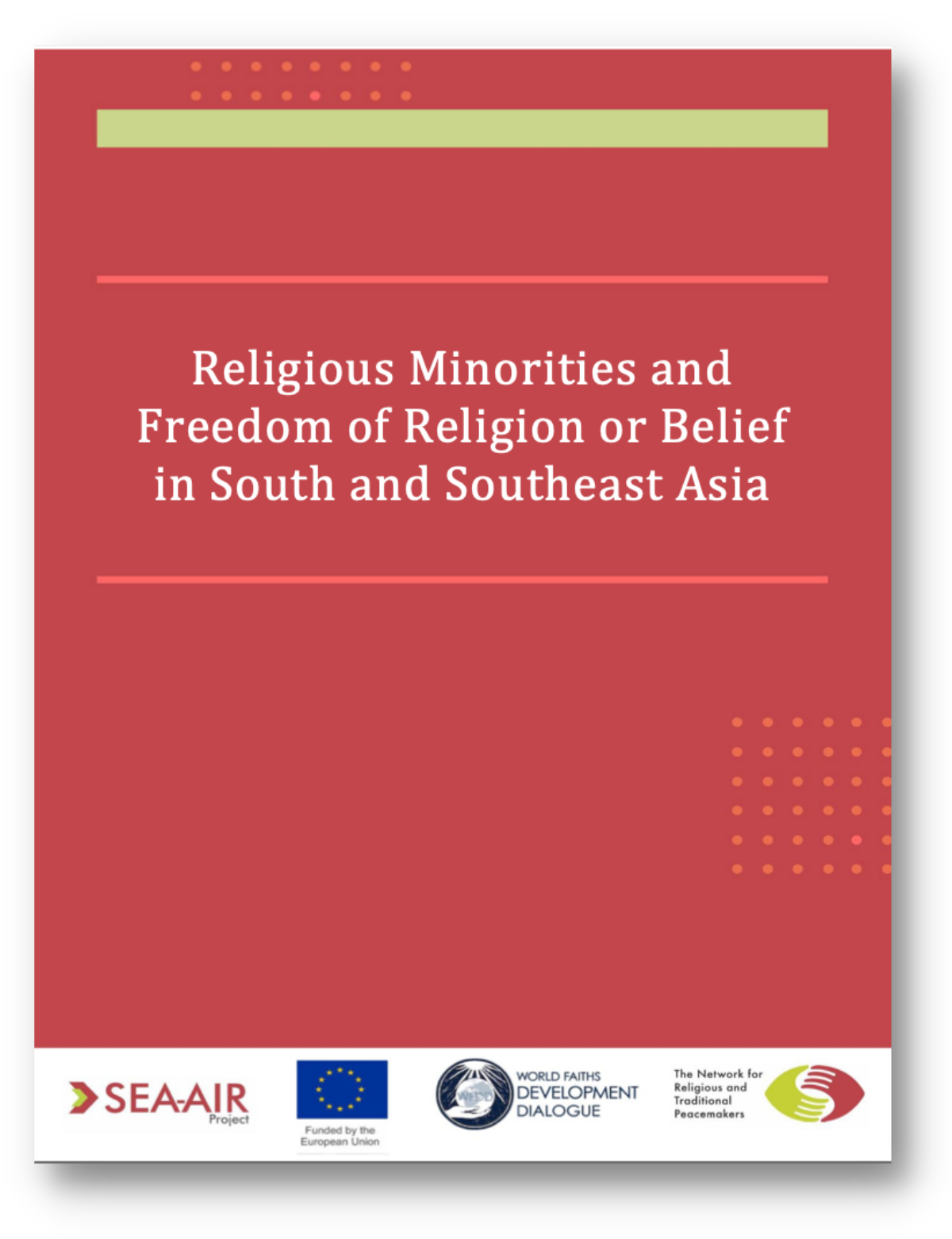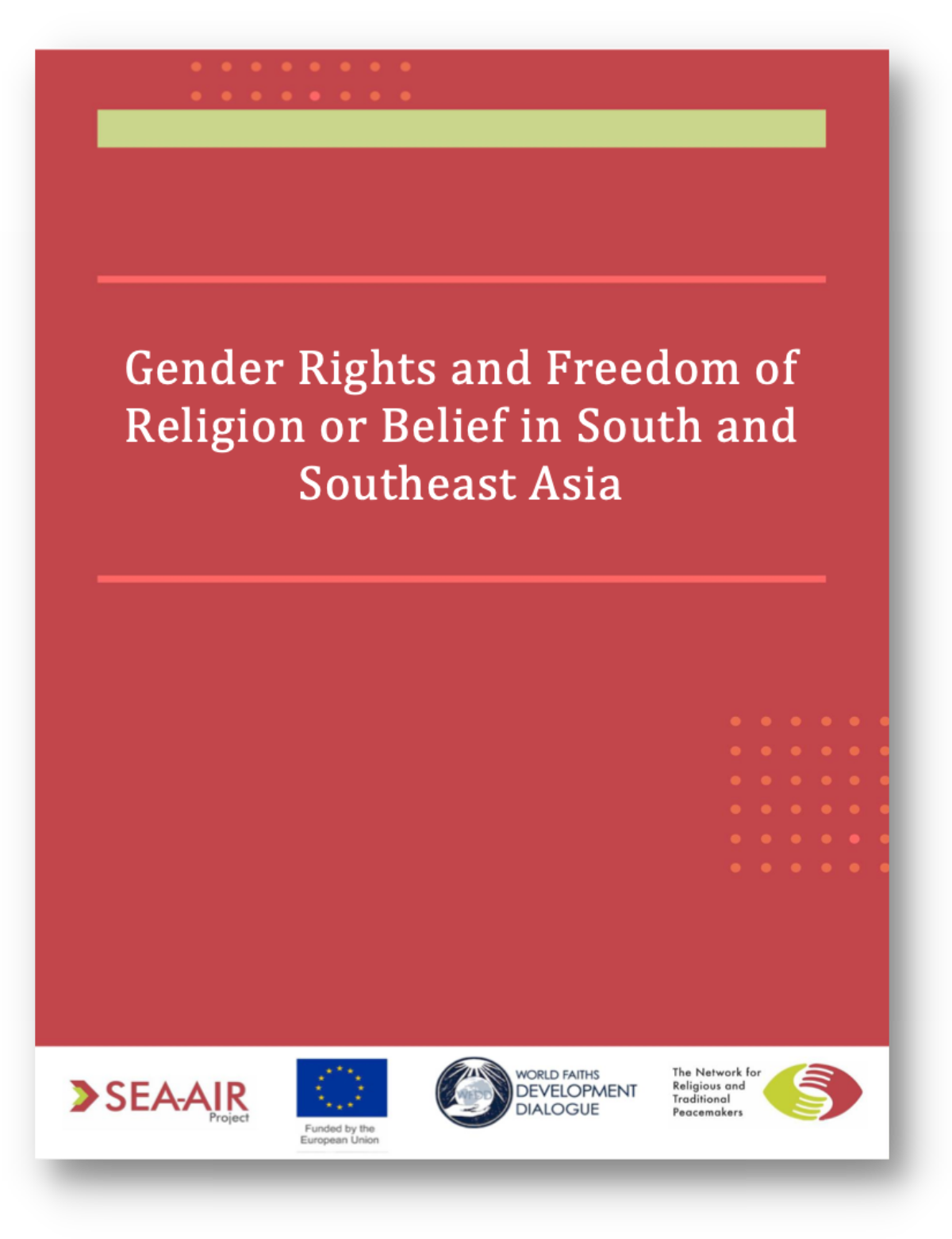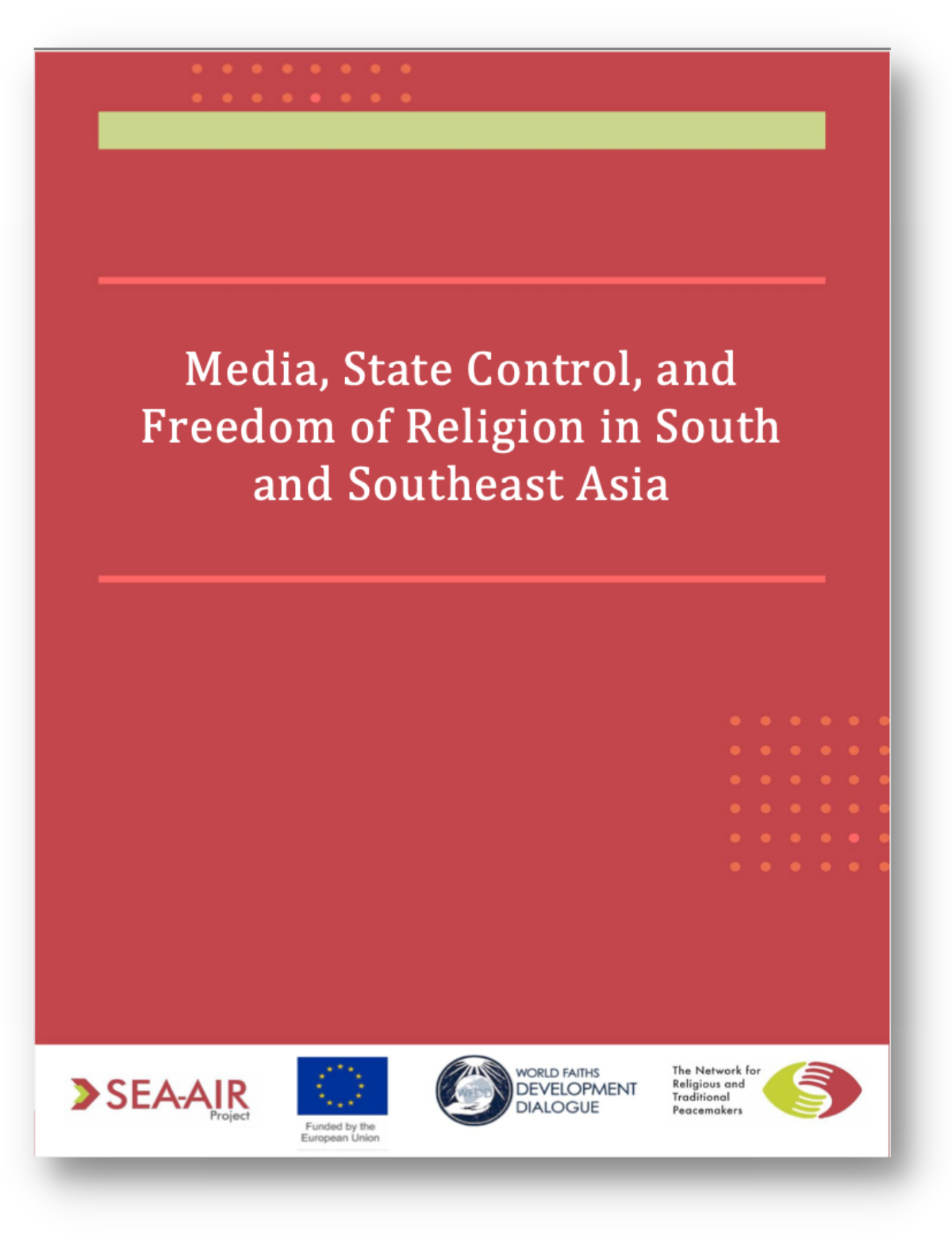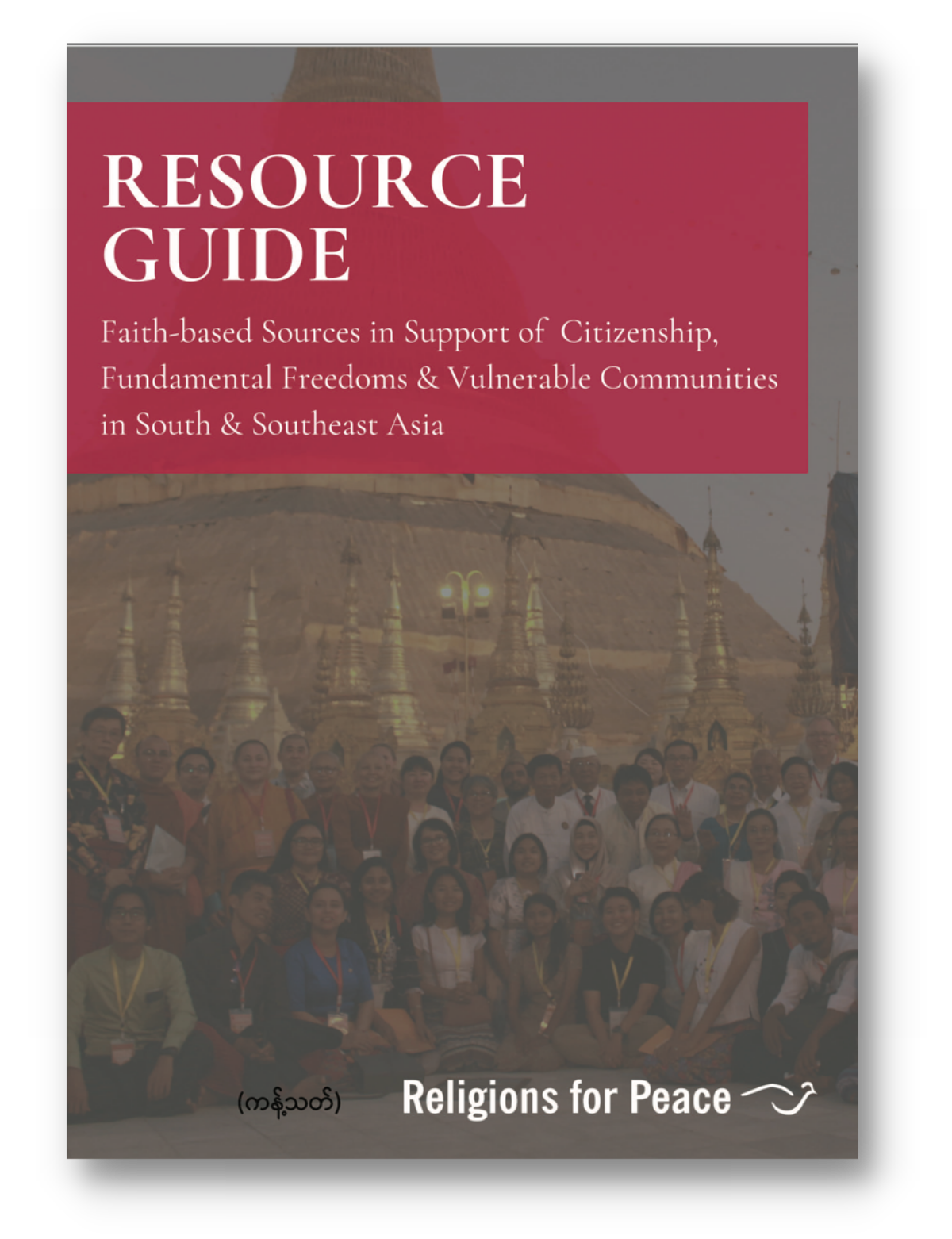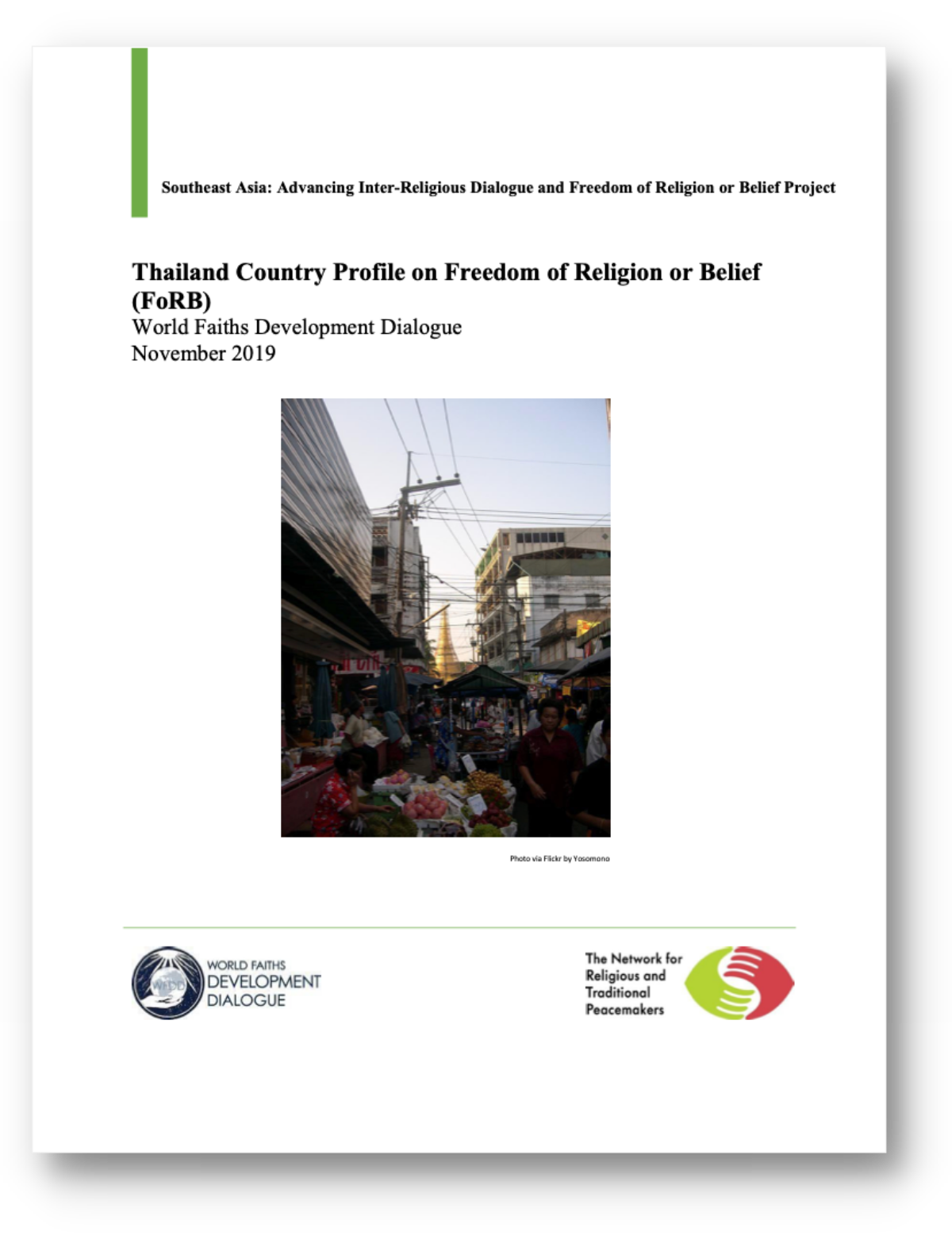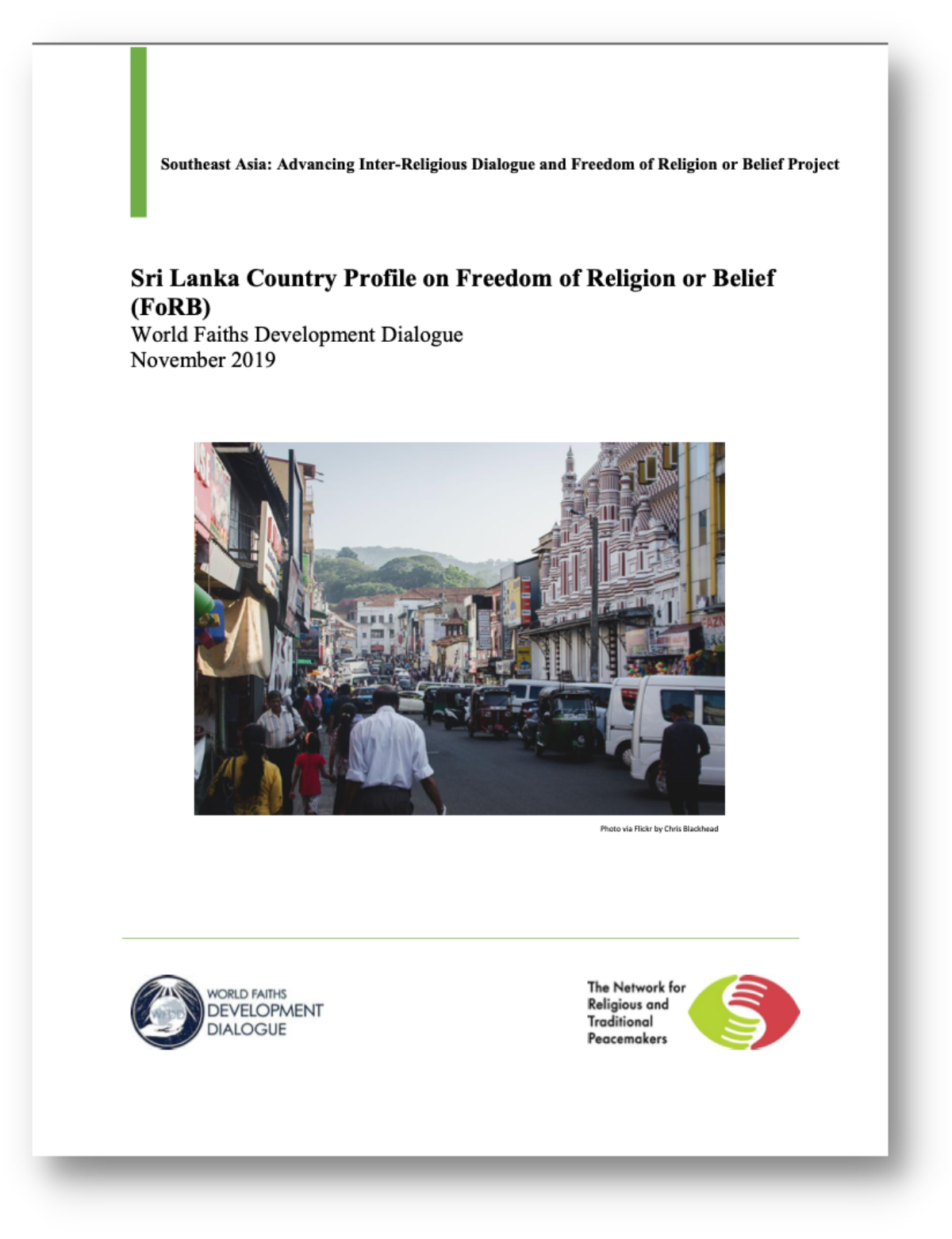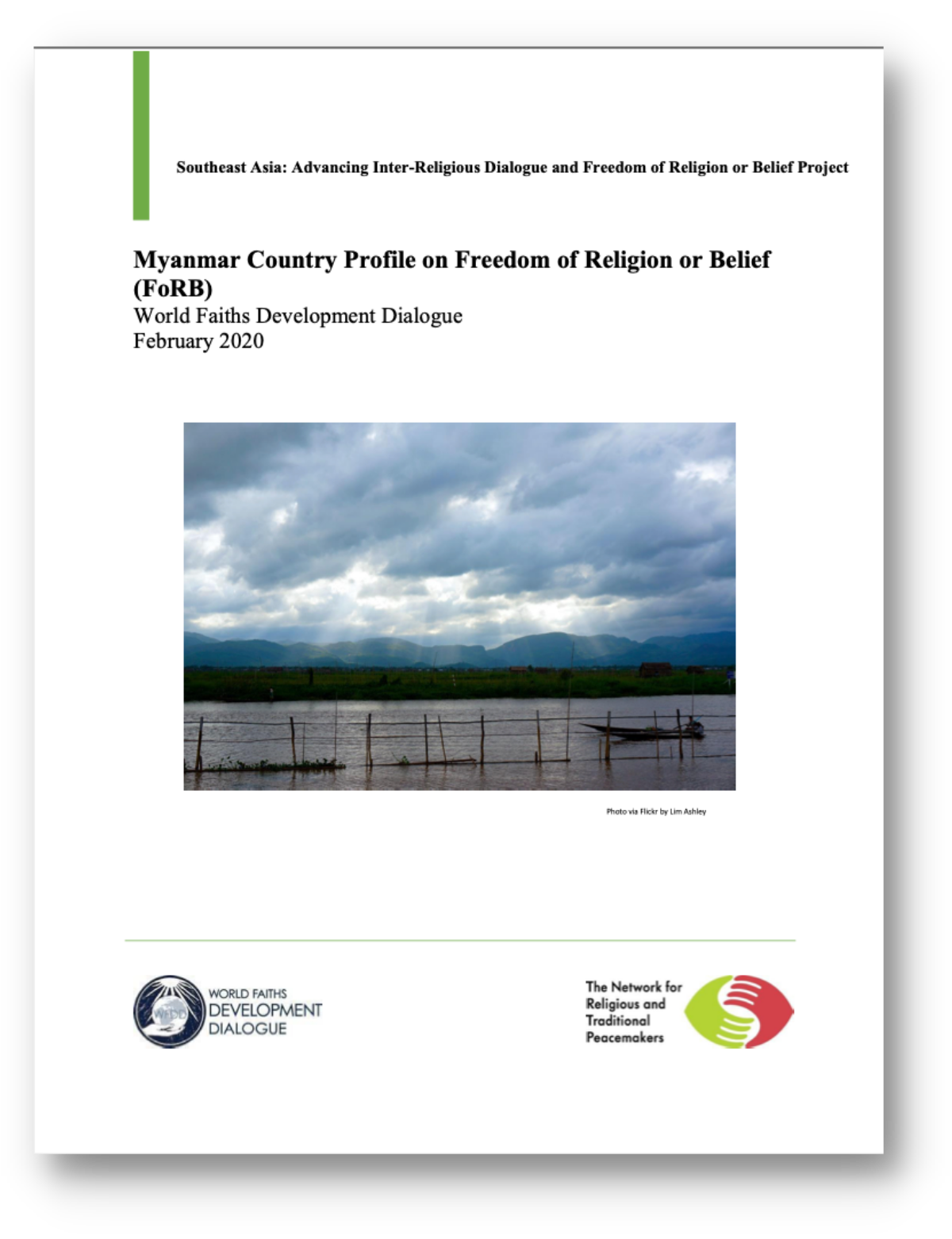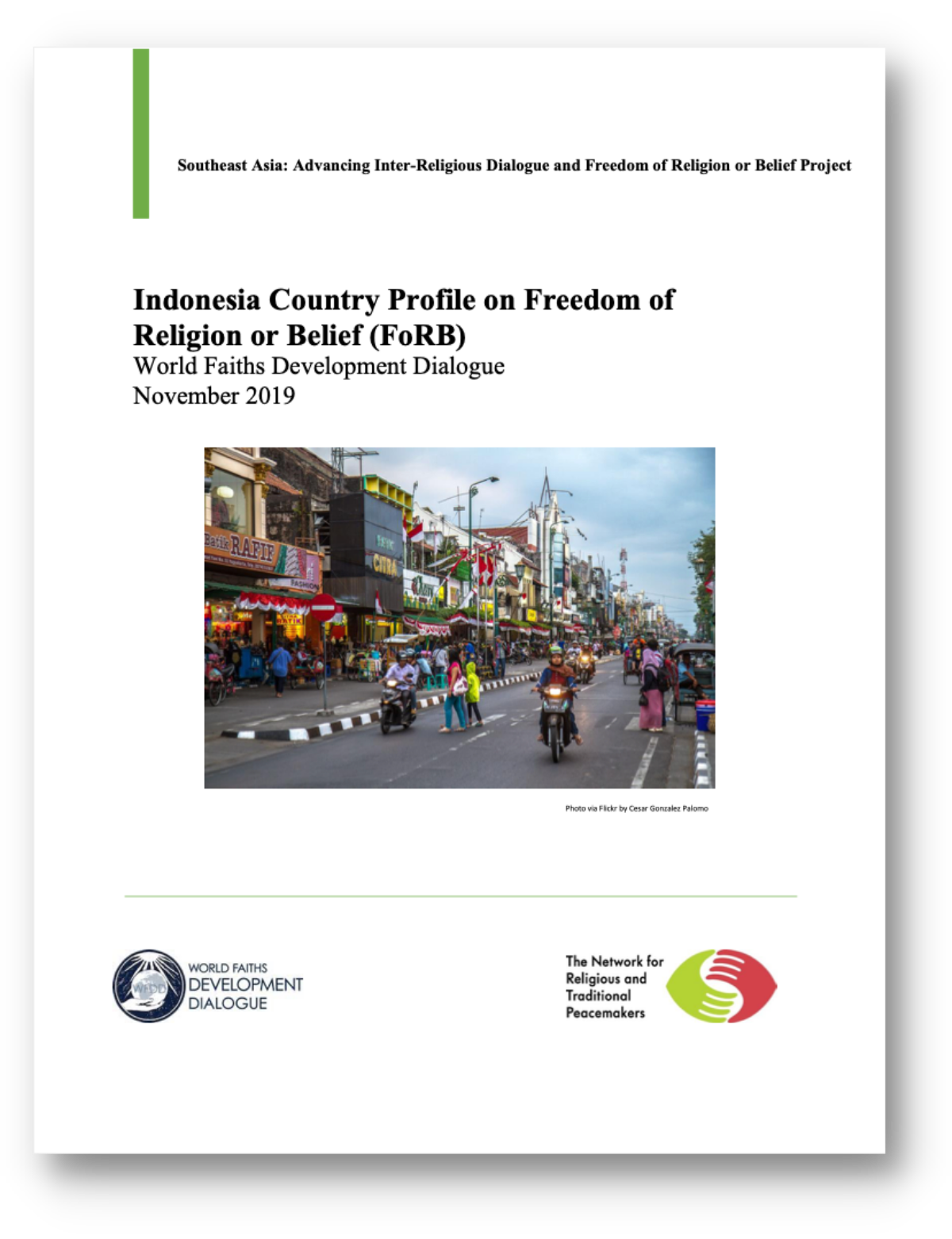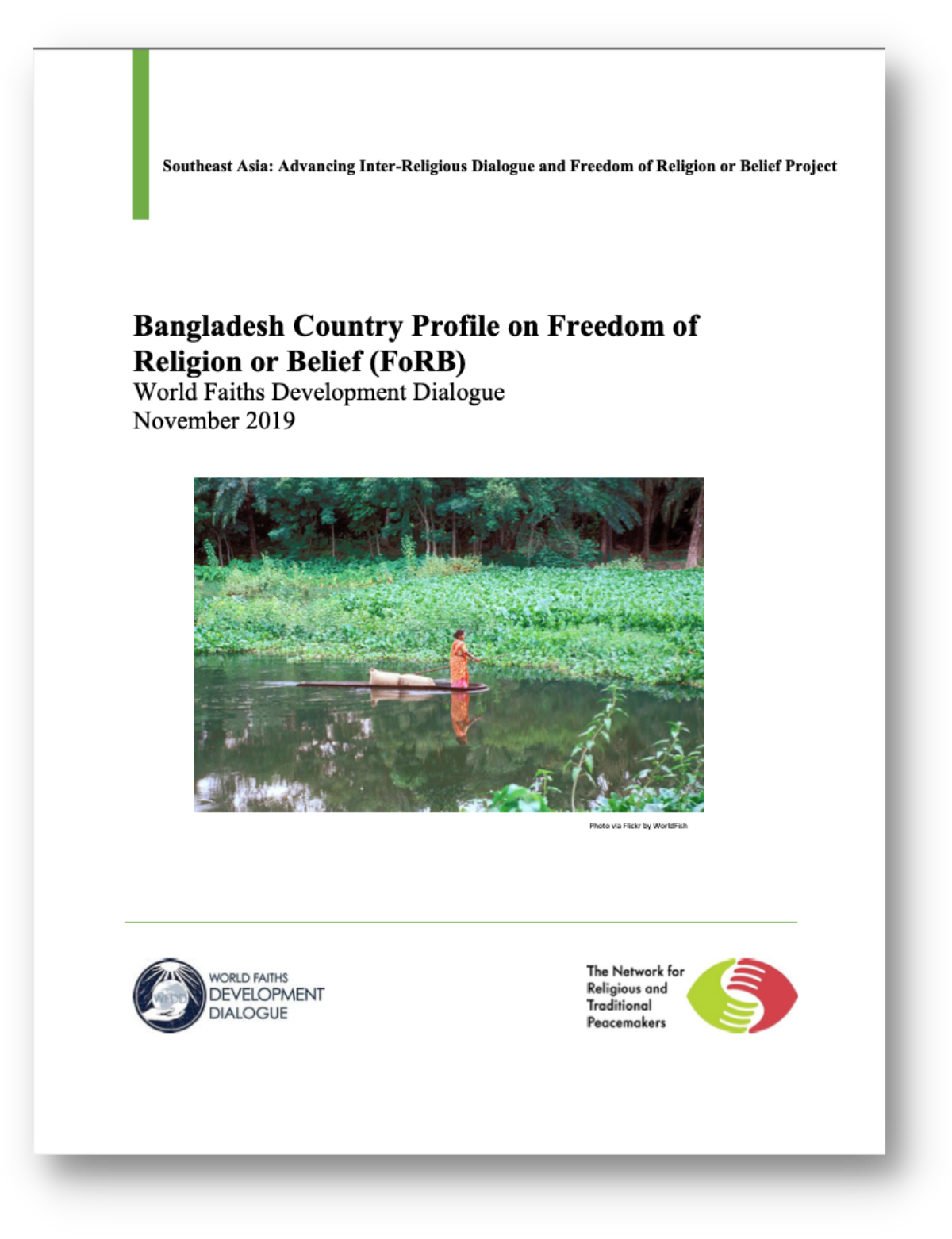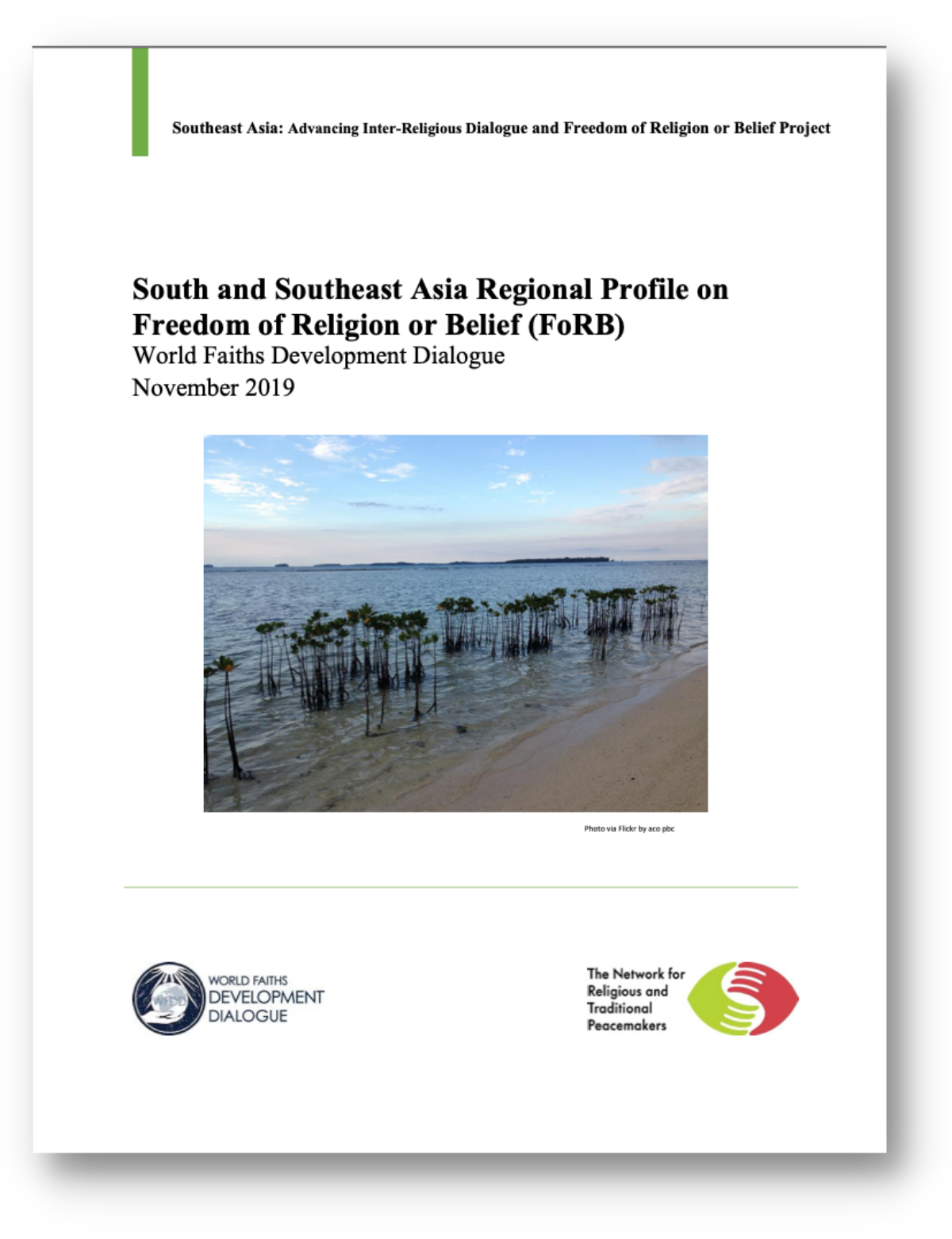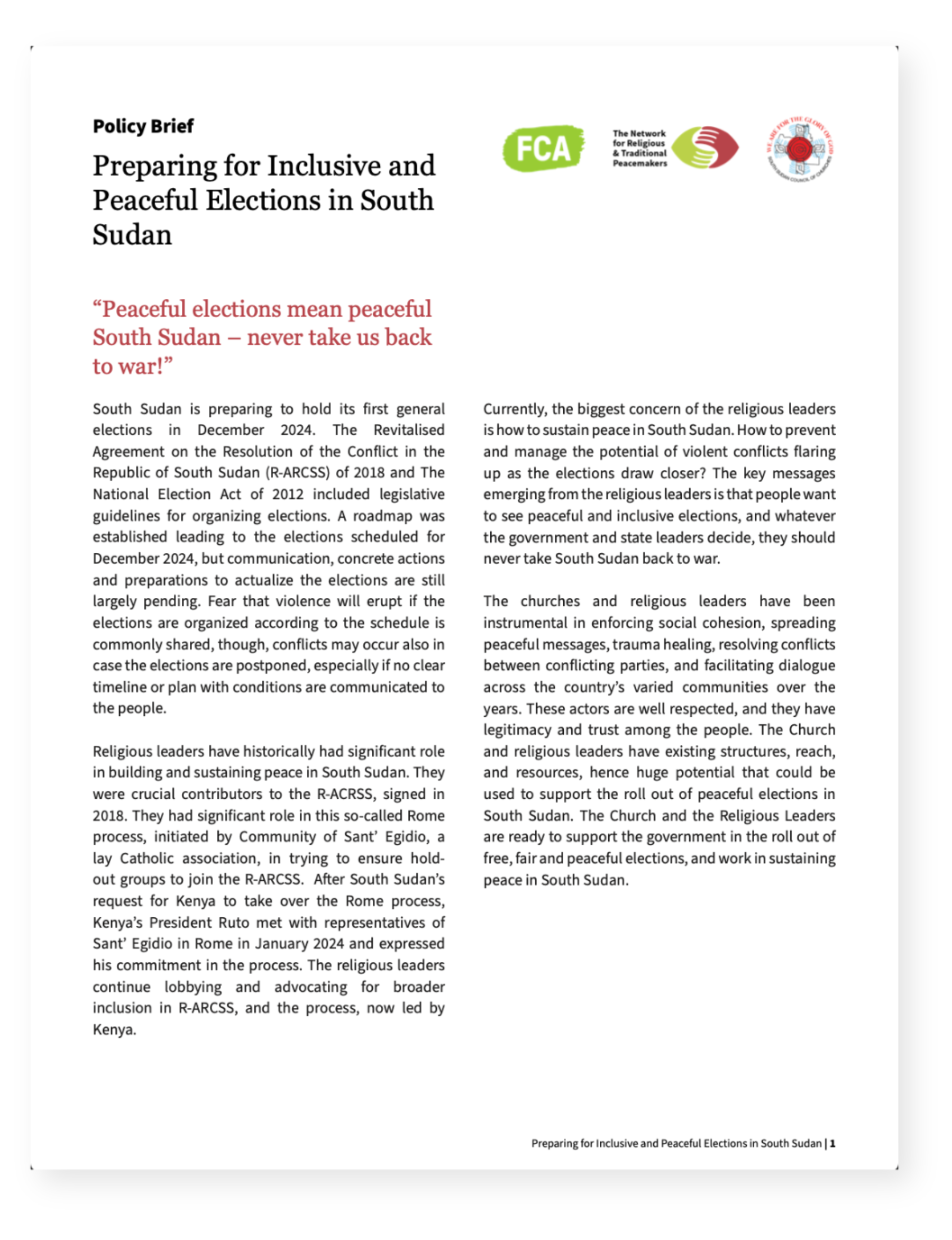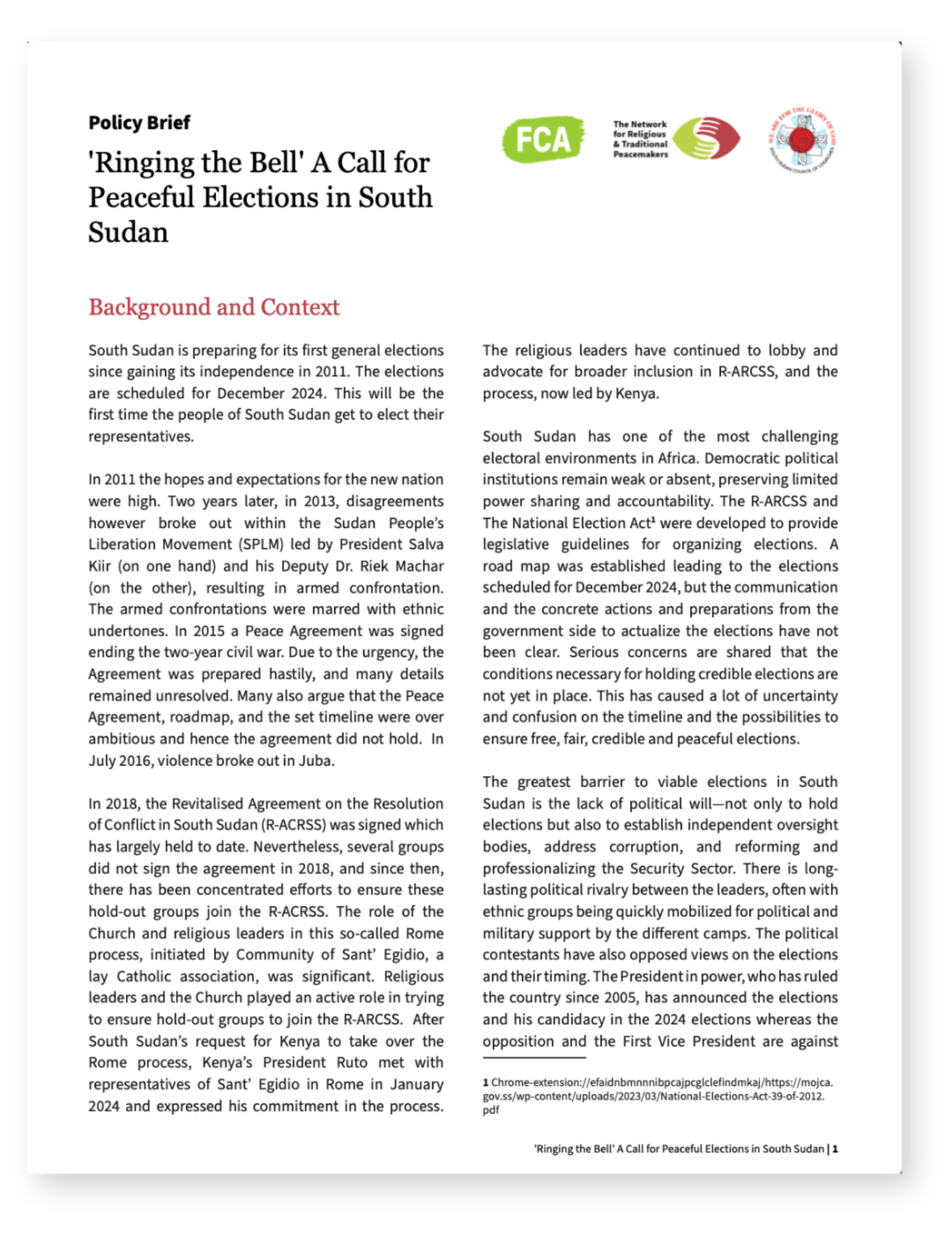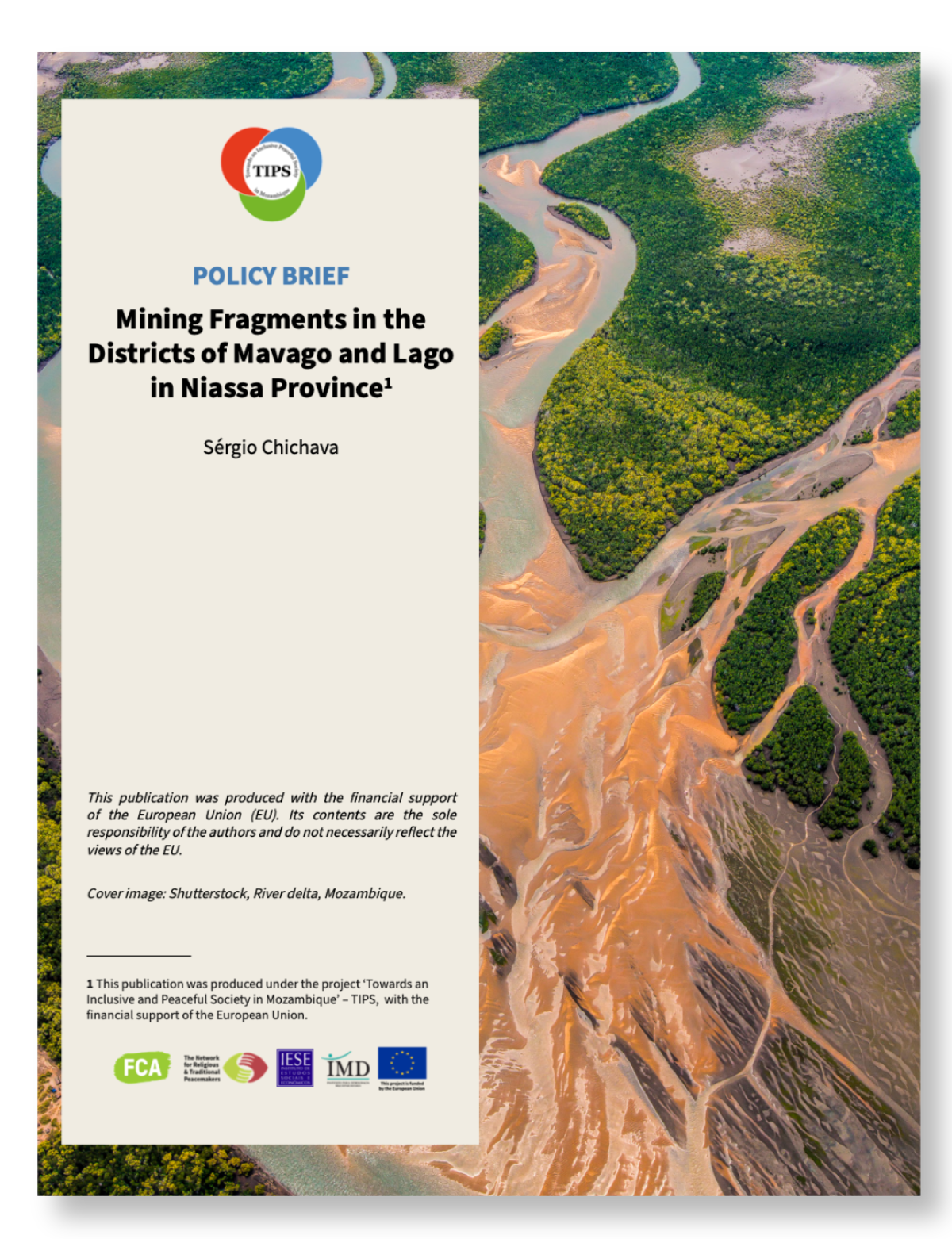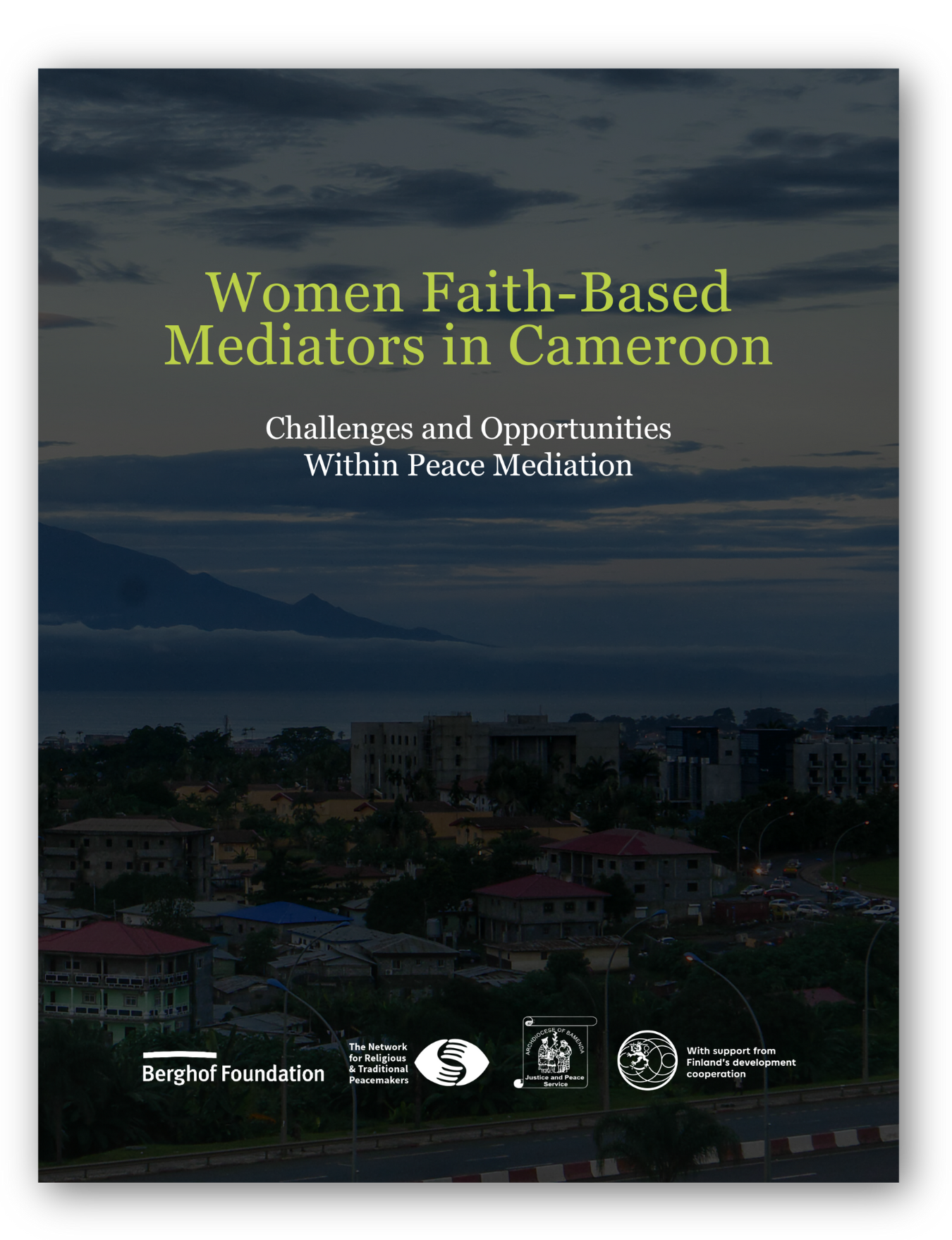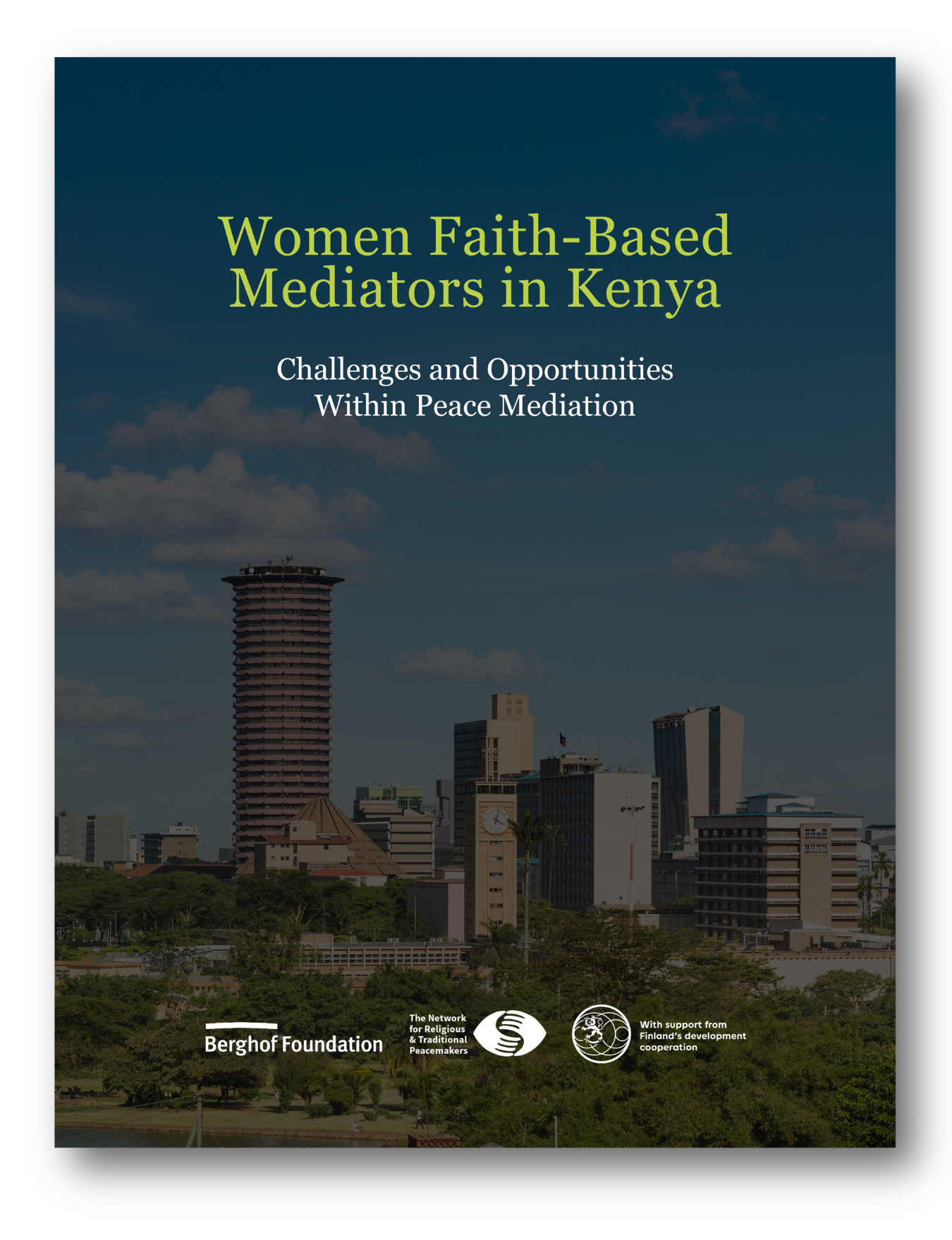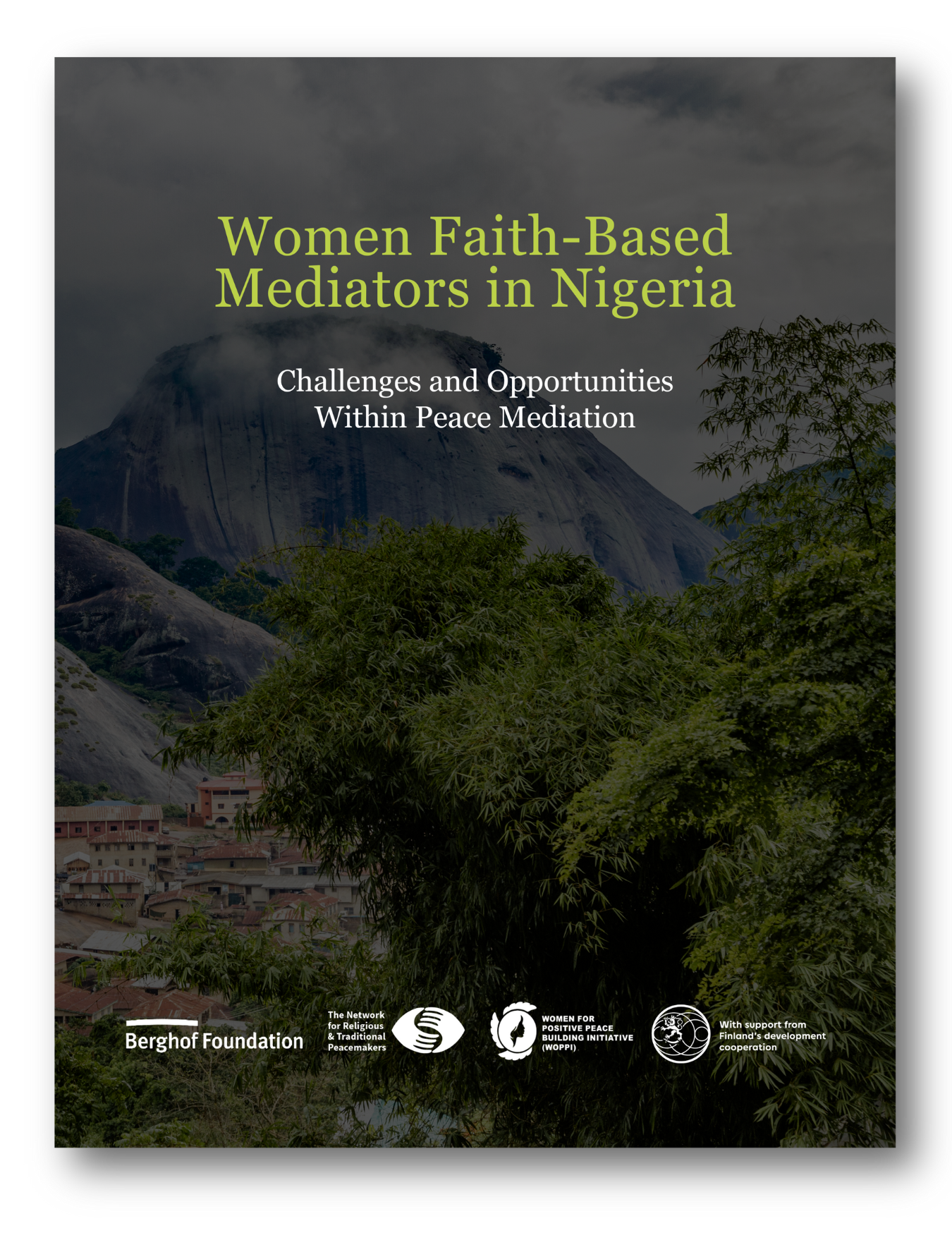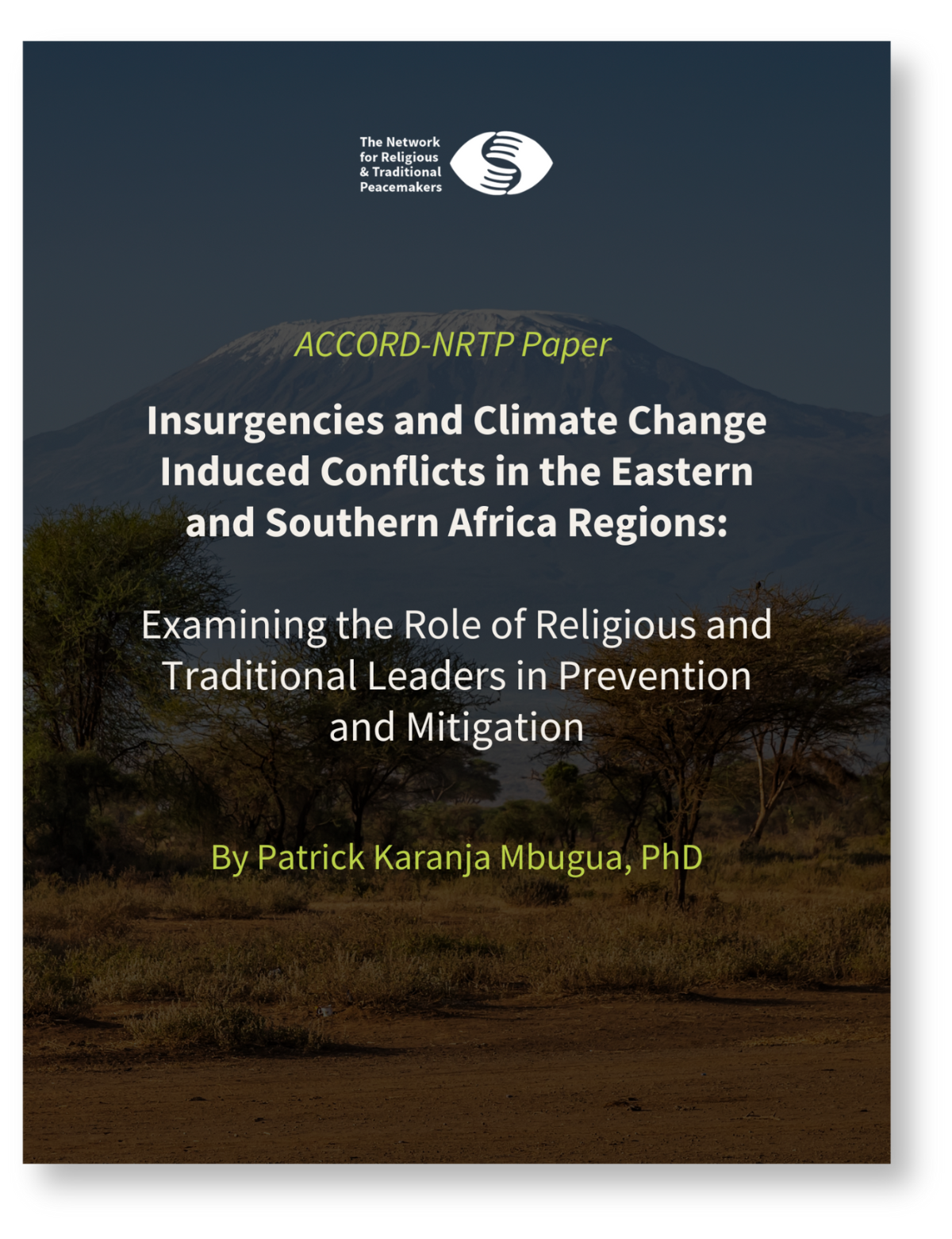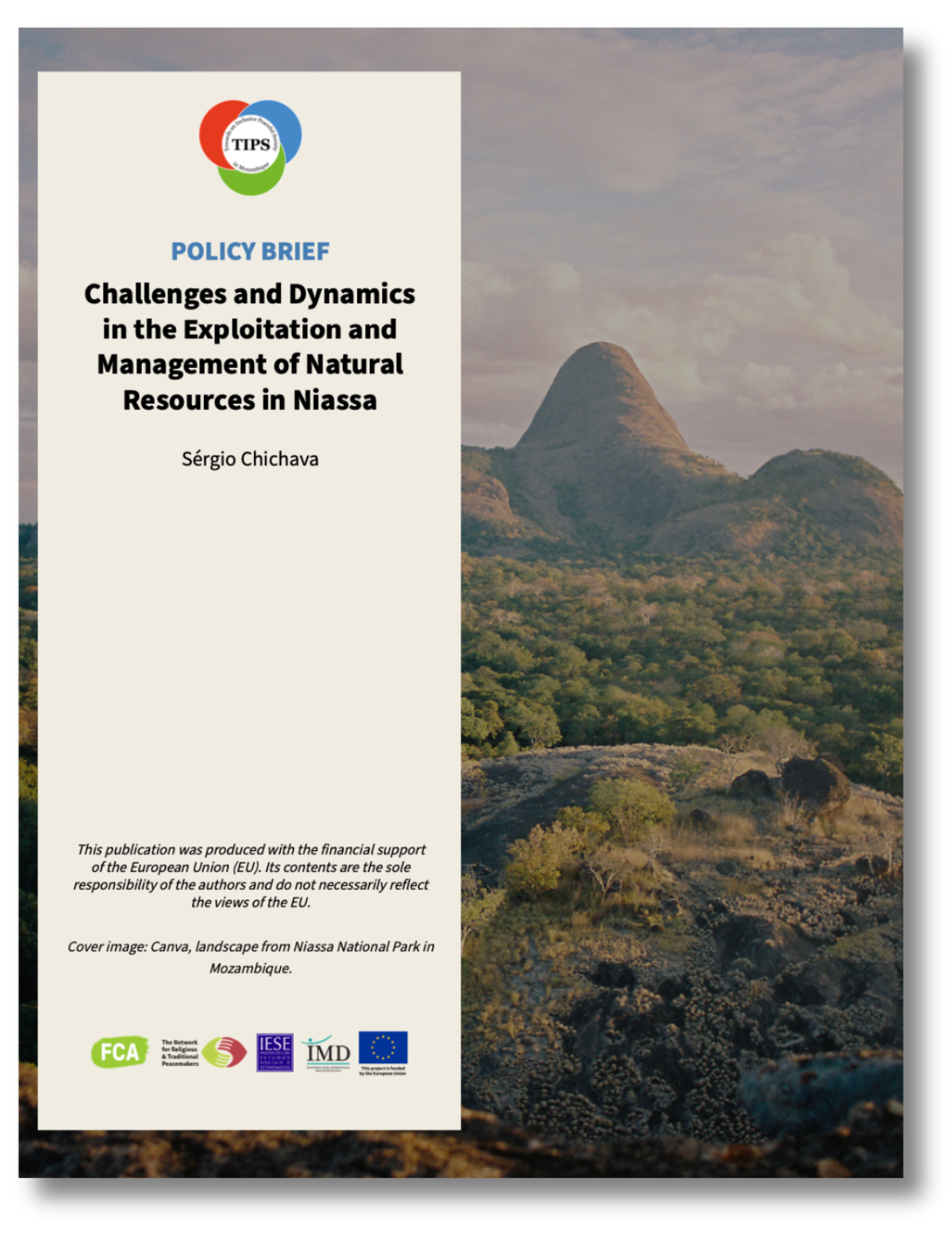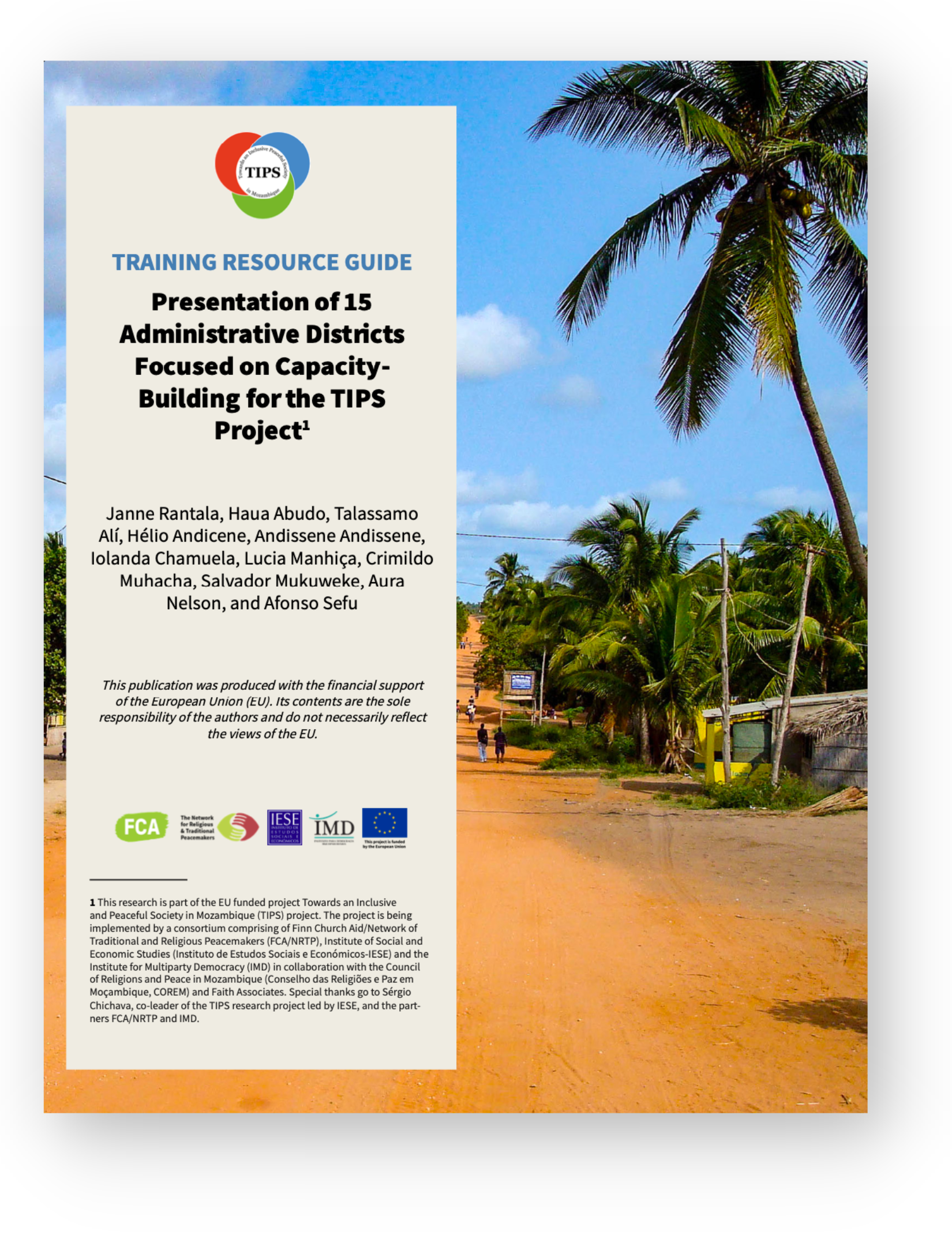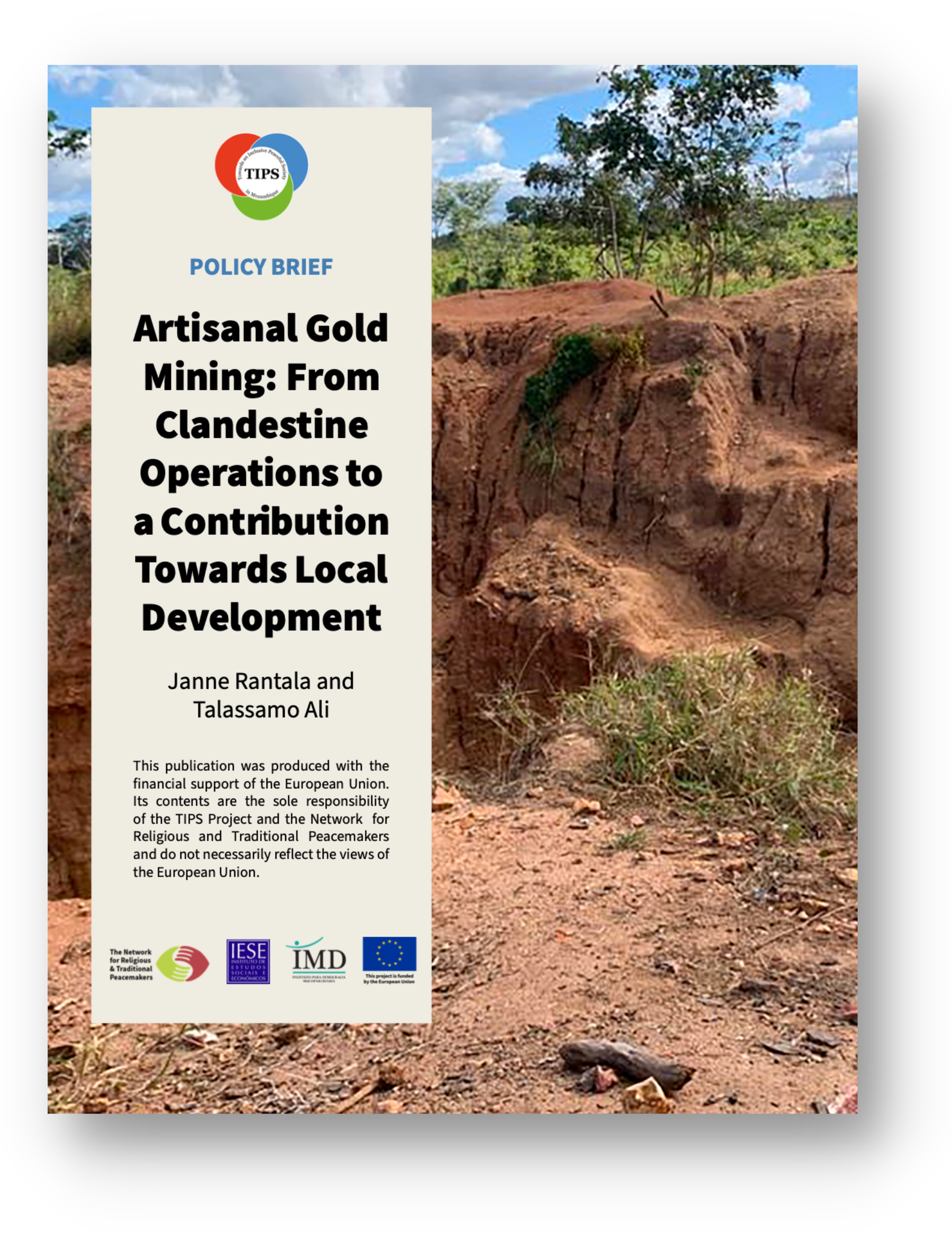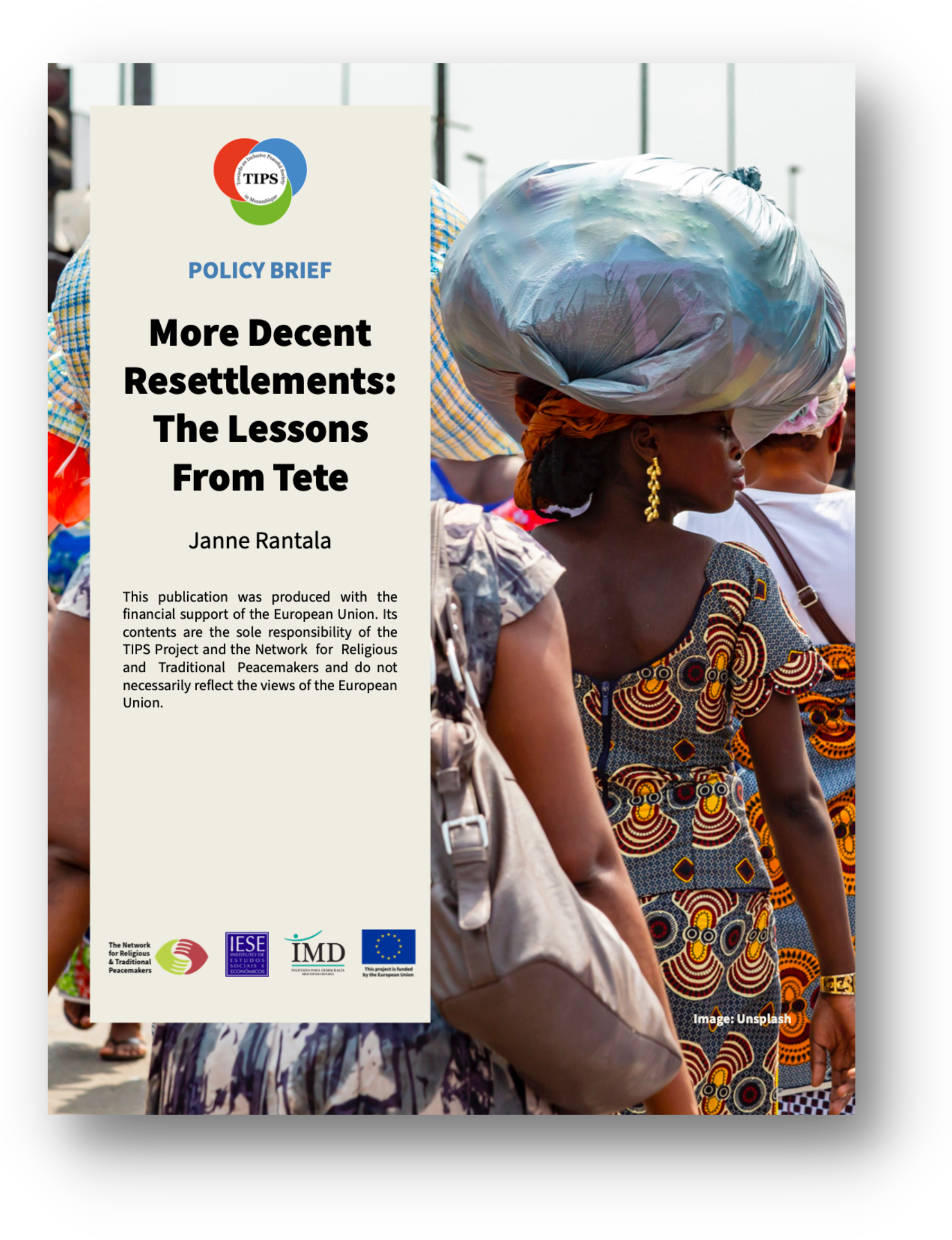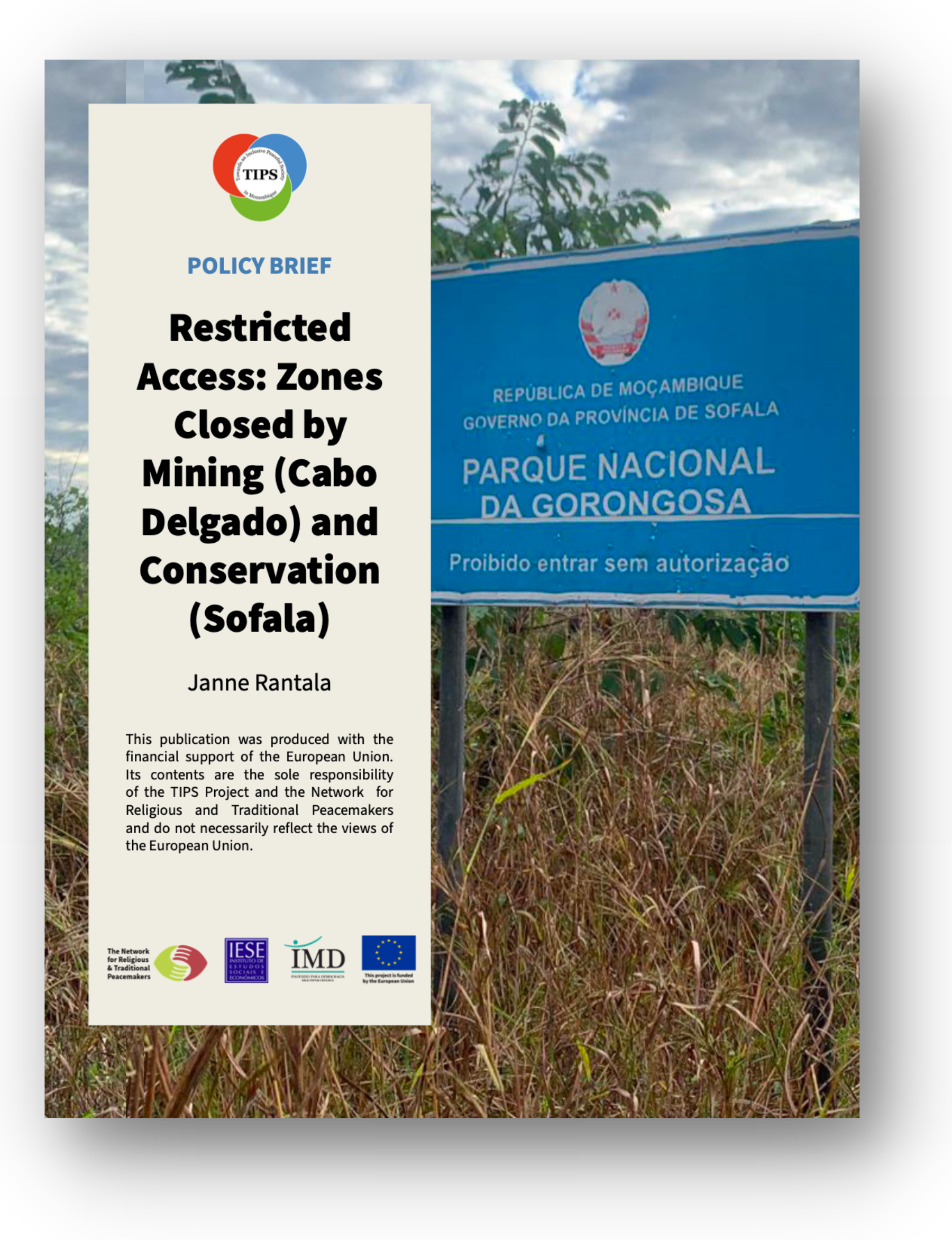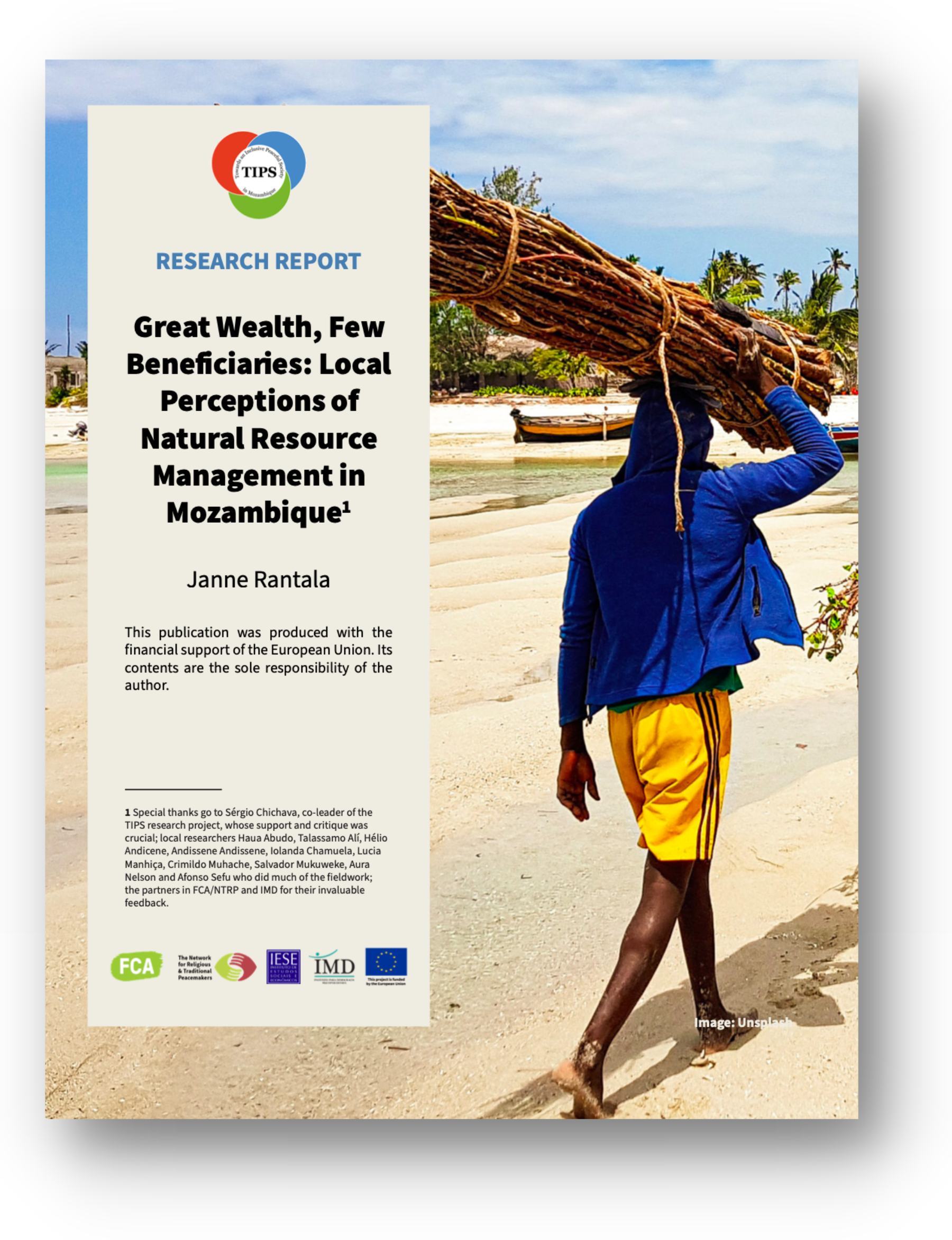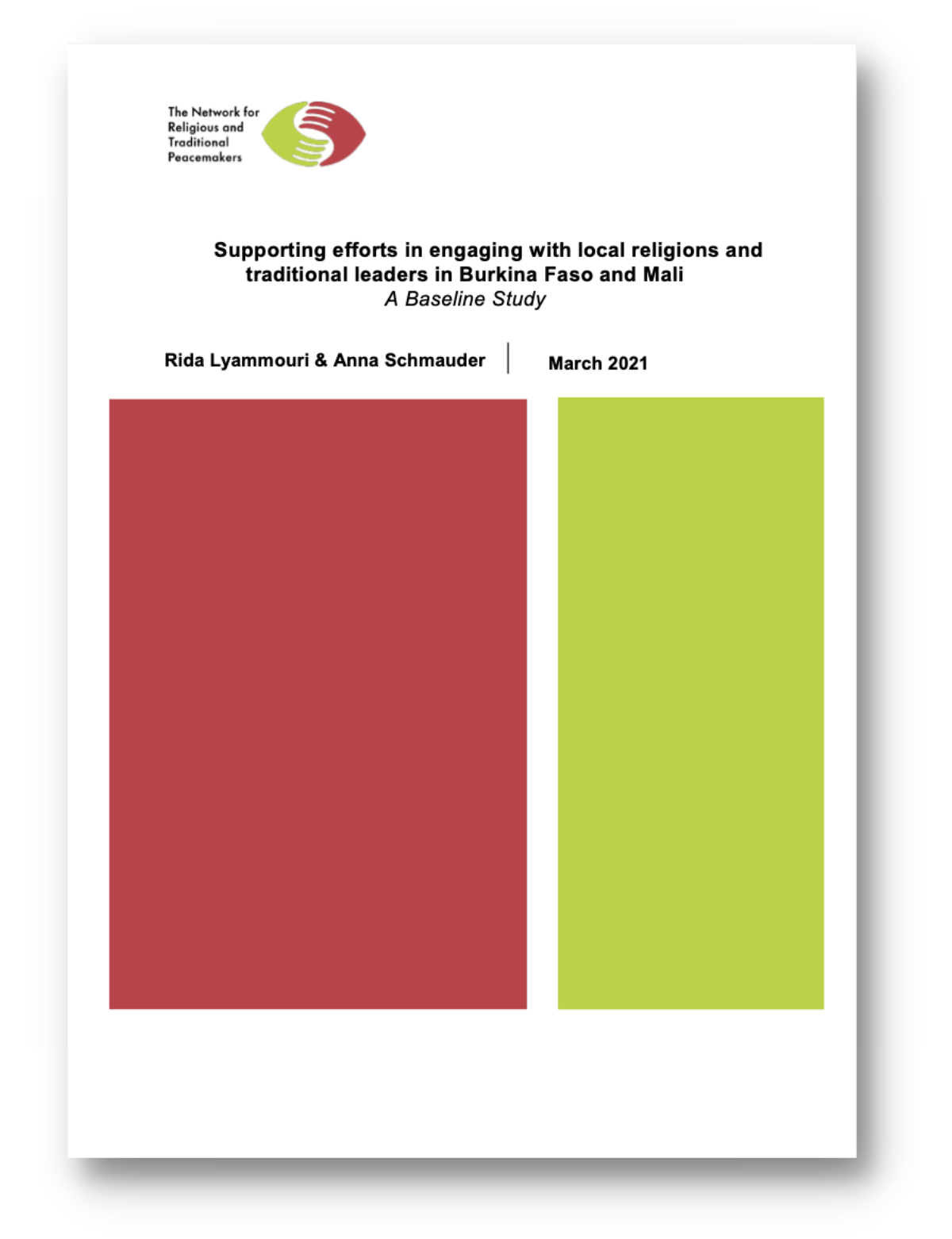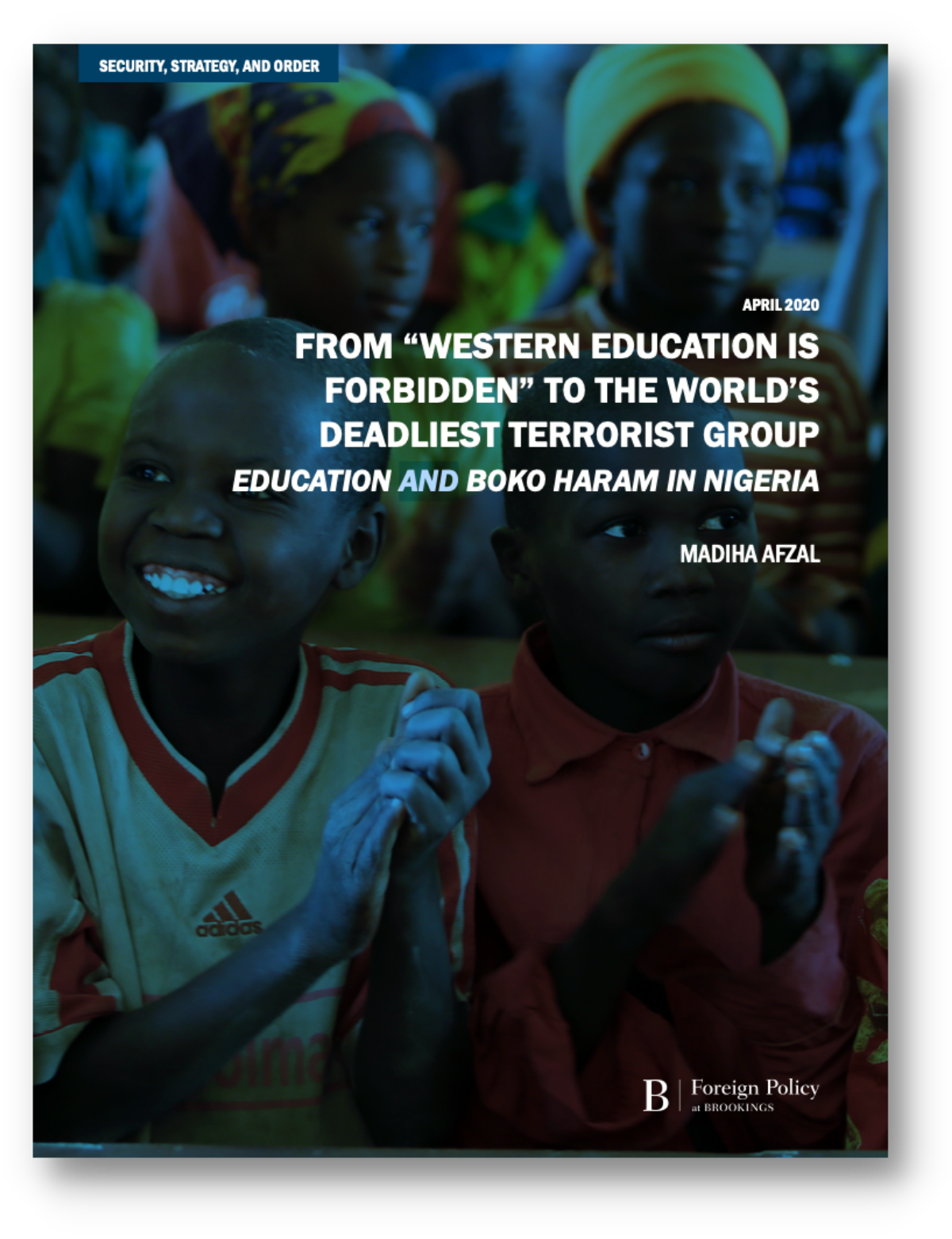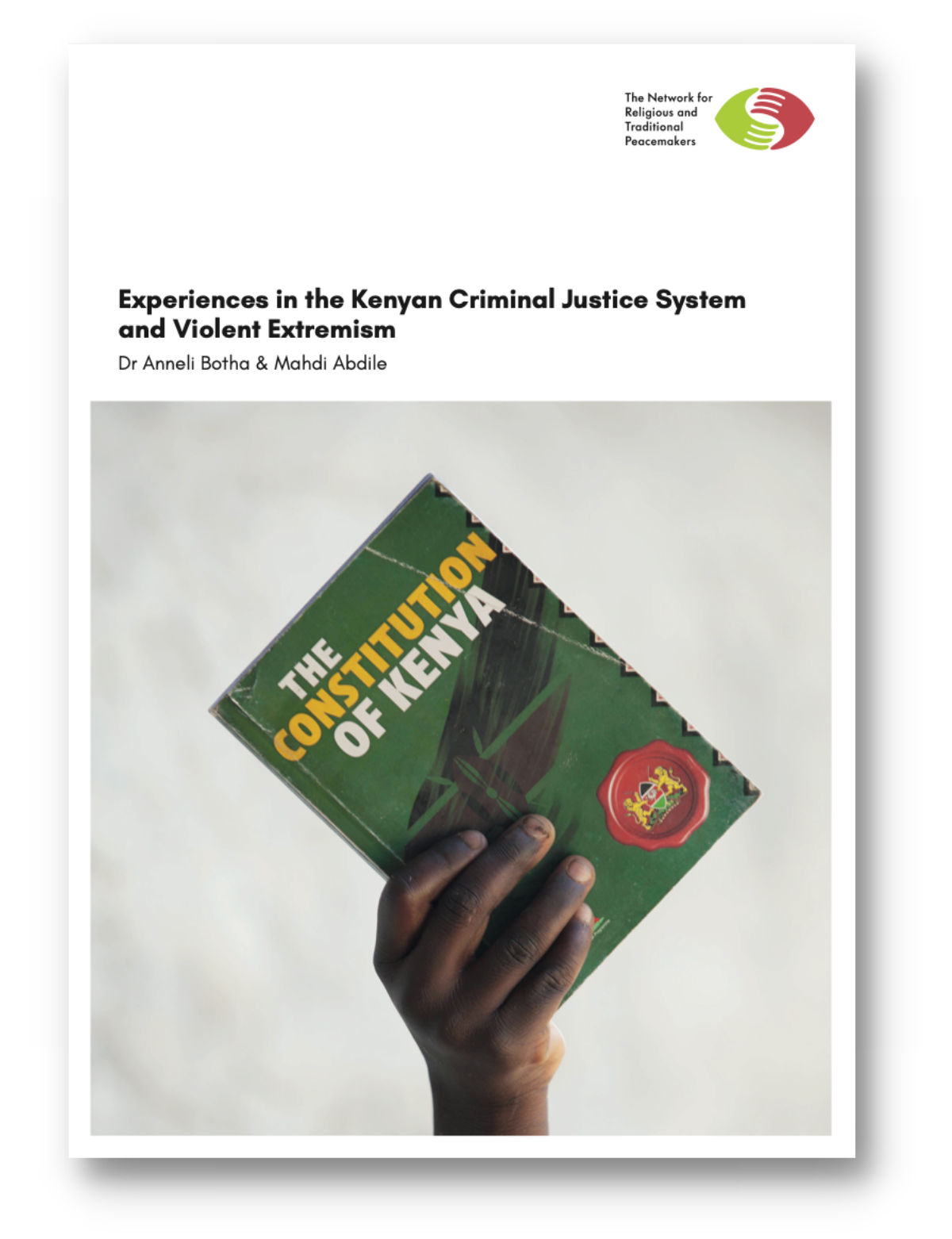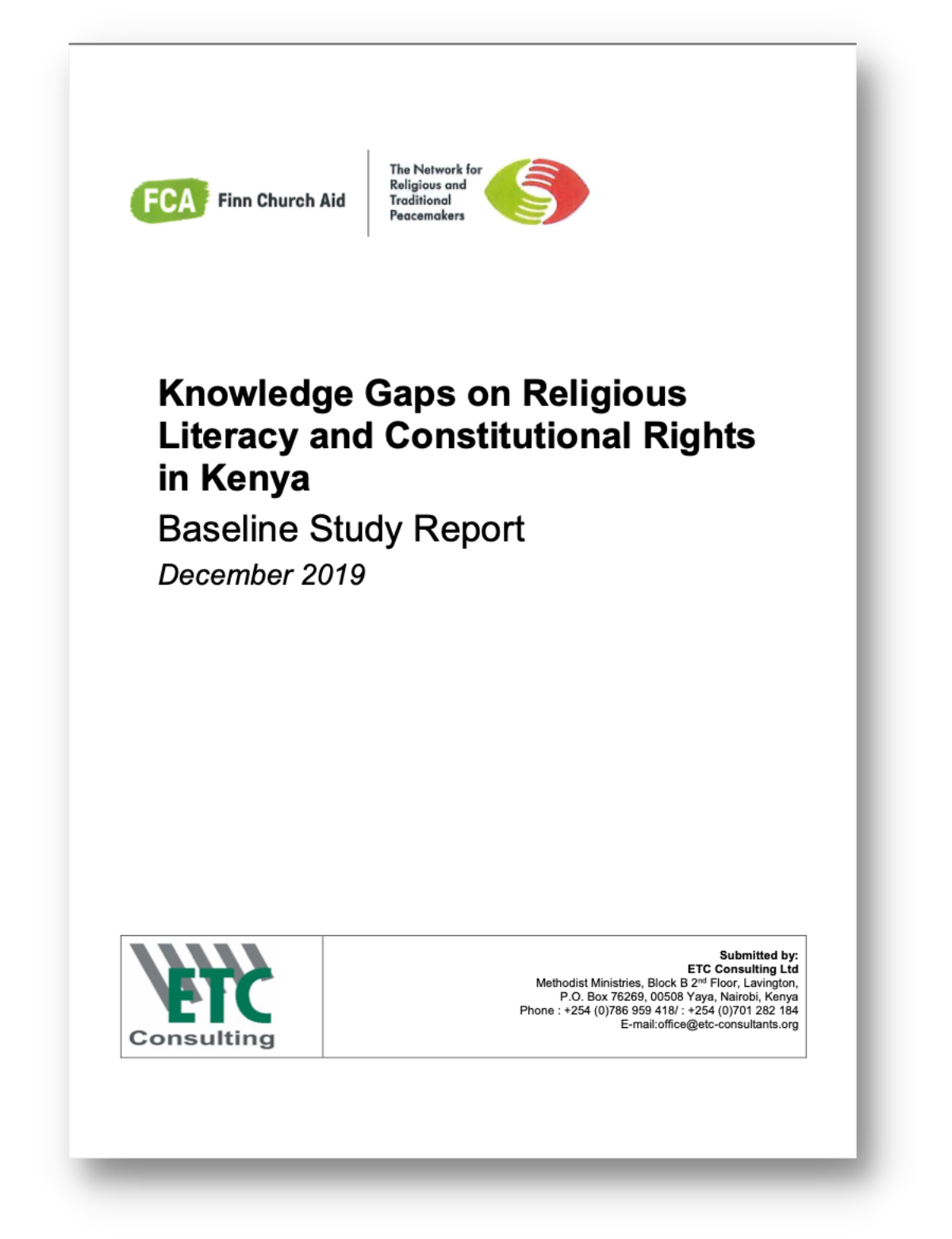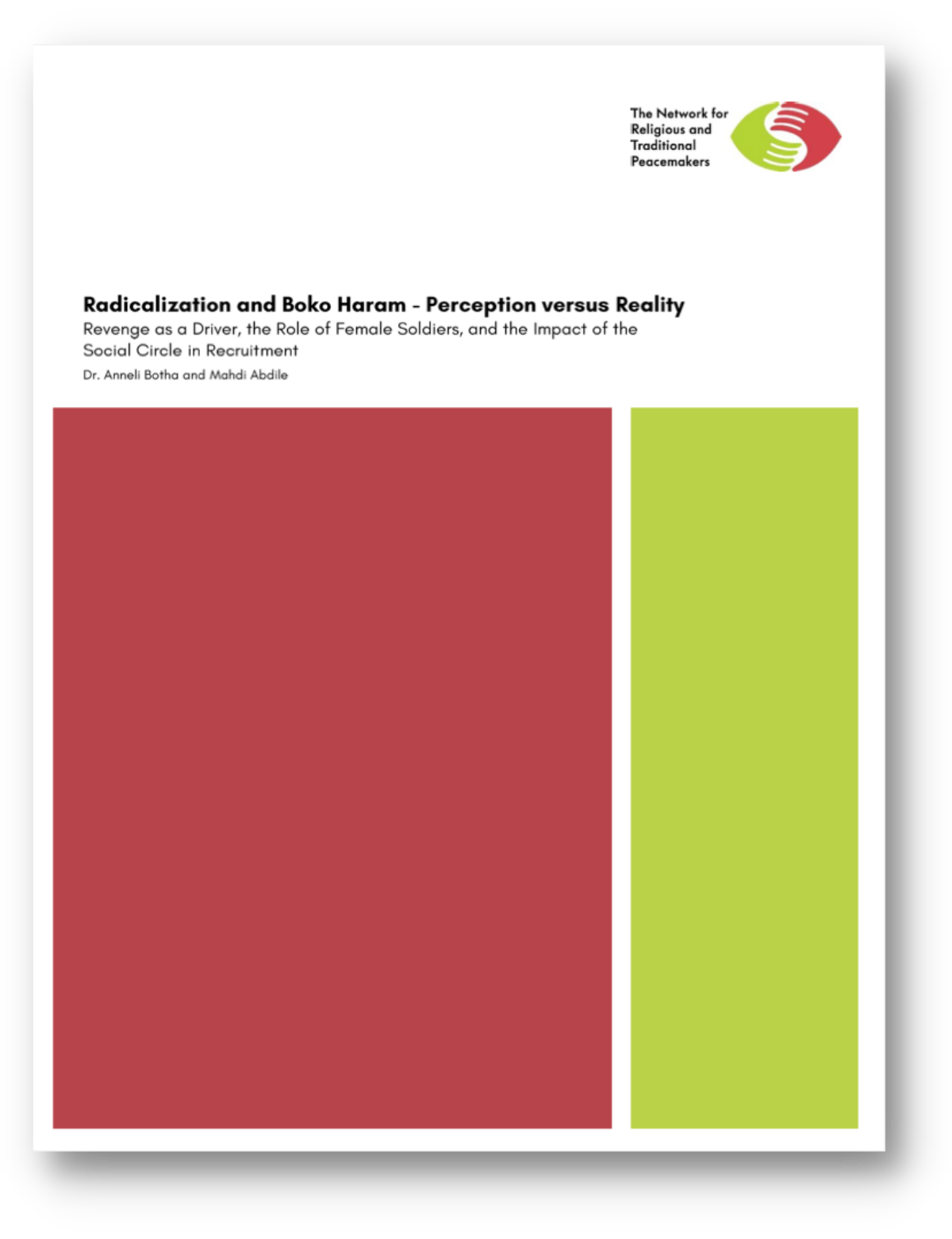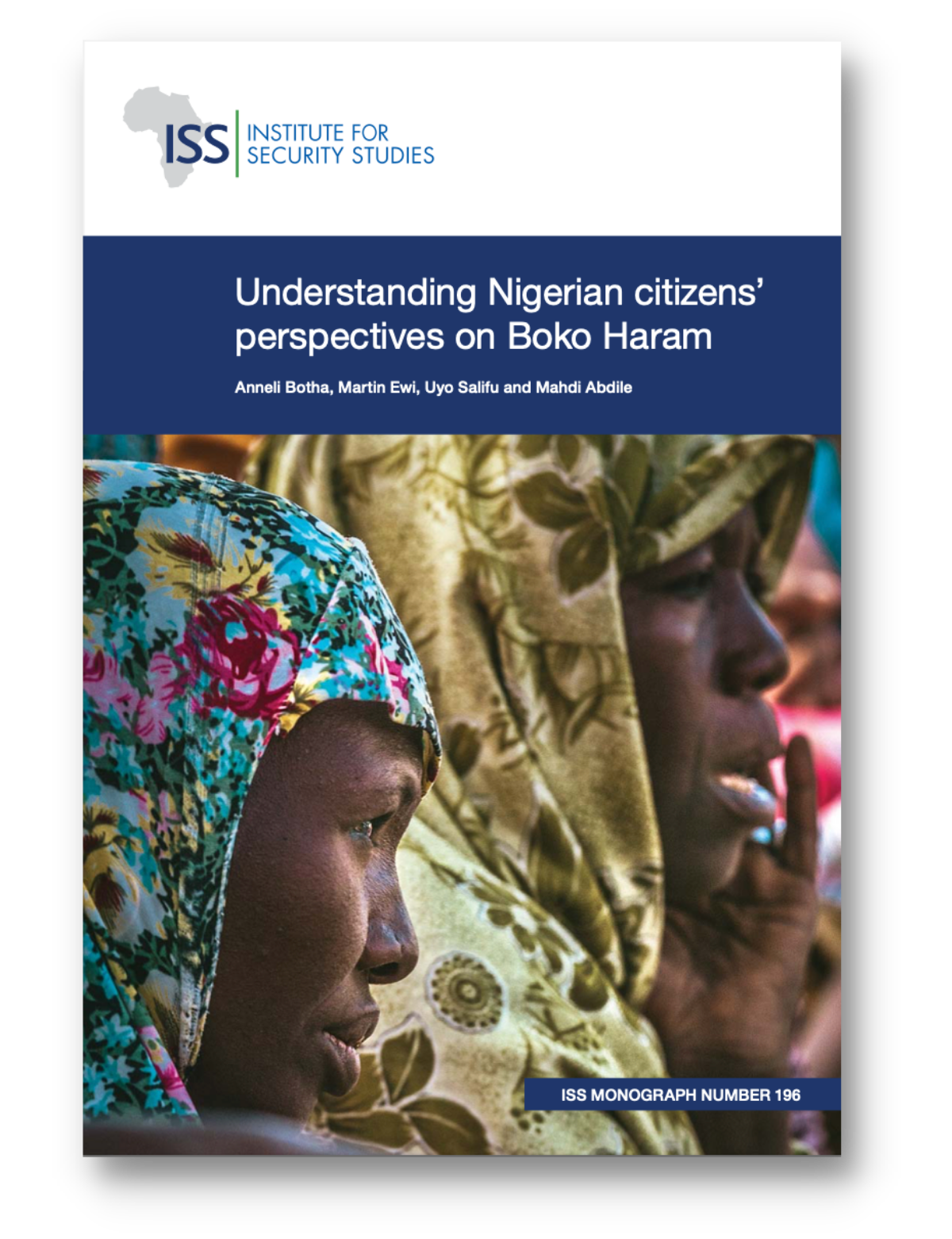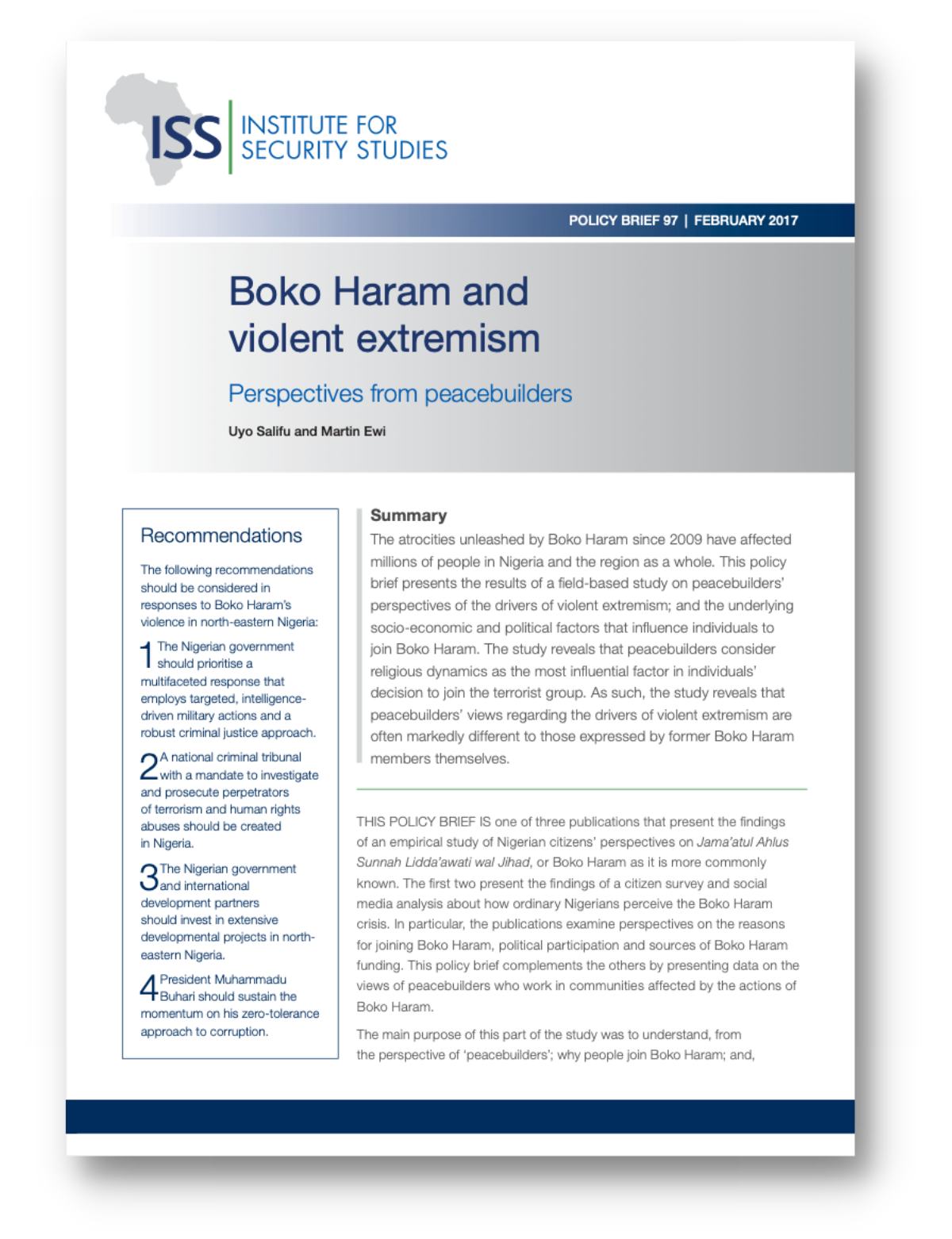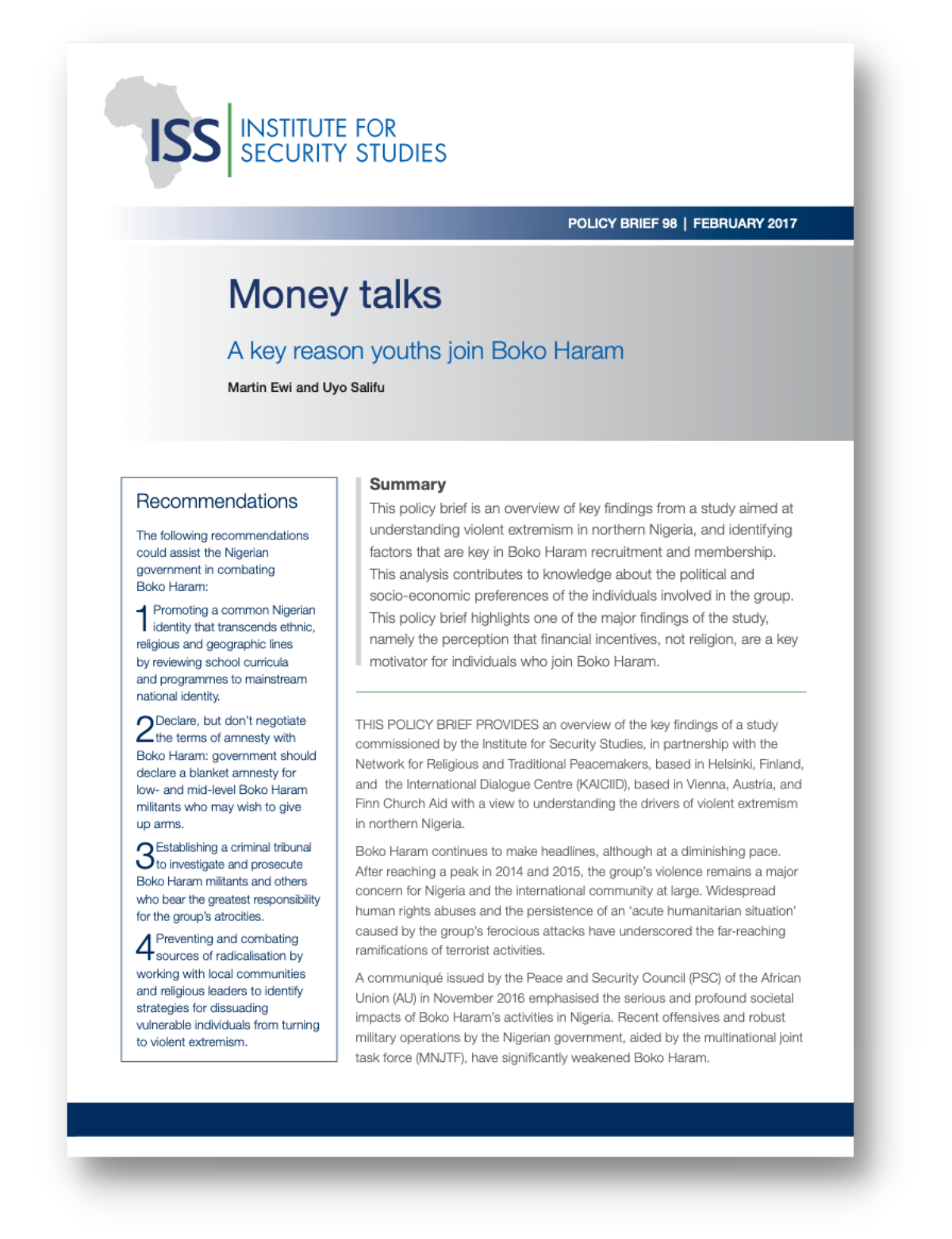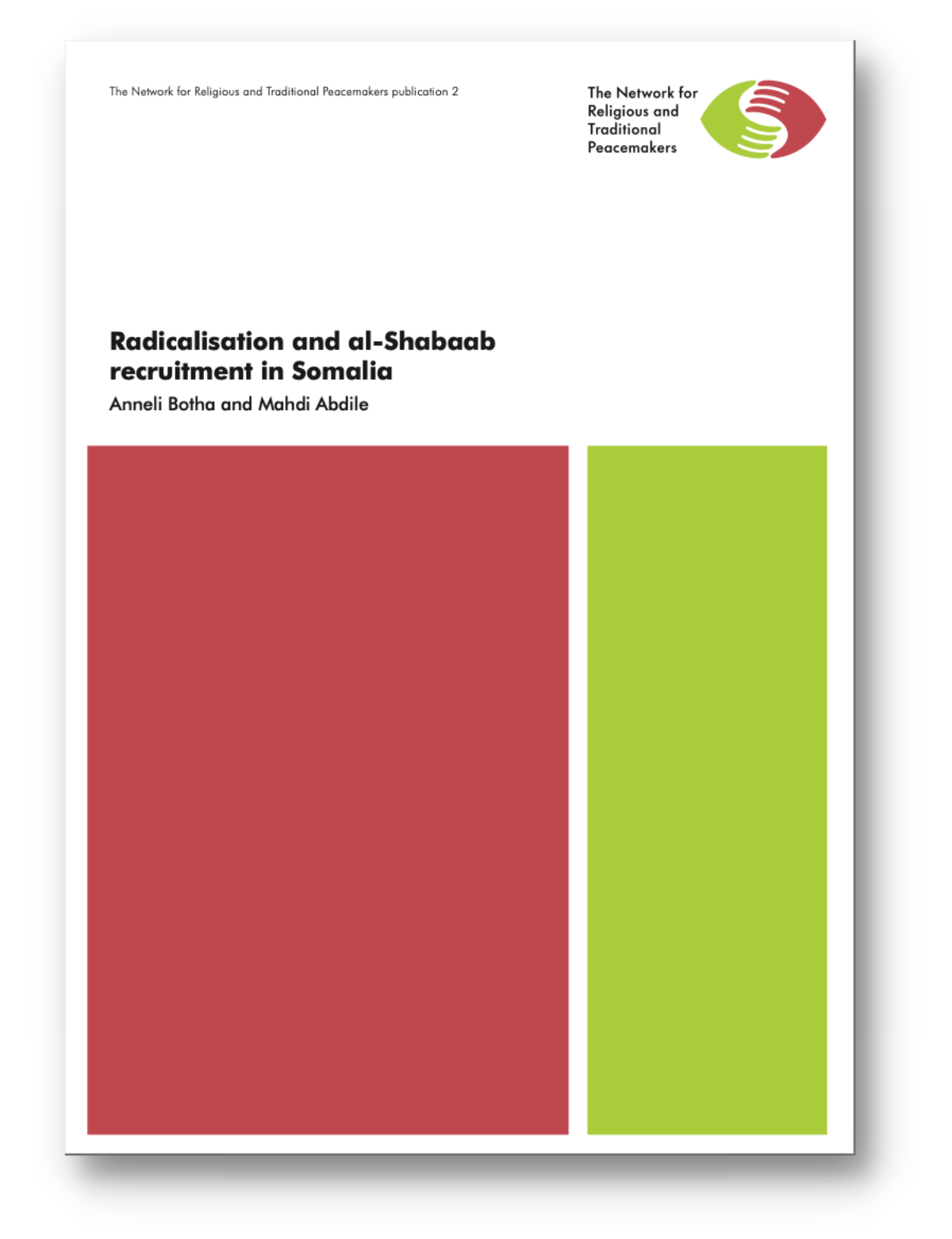Network Research
Global
2025
ToT: Youth Preventing Violent Extremism in their Communities
This Training of Trainers (ToT) was developed to enable trainers to deliver the iDove Training. During the ToT, prospective trainers first participate in the iDove Training themselves and consists of two components: The first part of the training focuses on PVE-related content, the second part of the training allows the participants to learn more about methodologies, learning styles, ways of training delivery and to complete a practicum.
2024
Toolkit: Islam and Freedom of Religion or Belief
The Islam & Freedom of Religion or Belief (FoRB) Toolkit serves as a practical guide for those working to advance religious freedom and human rights. This toolkit is designed for FoRB practitioners, peacebuilders, and policymakers committed to promoting gender equity, mutual respect, and interreligious dialogue. It aims to help them engage more effectively by fostering a better understanding of the intersections between Islam and FoRB.
2023
Synthesis Paper: Under Crossfire: The Couraeous Work of Women Faith-Based Mediators to Prevent, Mitigate and Resolve Violent Conflicts
While WFBMs utilize creative strategies to achieve results despite these barriers and risky conditions in which they are forced to work within, their efforts remain largely invisible, unexplored, and uncaptured. With this study, the Network for Religious and Traditional Peacemakers (NRTP) and the Berghof Foundation (BF) would like to give visibility to these brave women and young women, their daily struggles and their unmatched courage and perseverance.
2023
Women Faith-Based Mediators in Colombia: Challenges and Opportunities Within Peace Mediation
Derived by political and social disputes, Colombia has experienced over 50 years of internal armed conflict between left-wing guerrillas, right-wing paramilitaries and government forces. Religion, although not a driving factor of conflict, has played a significant role in driving peace mediation and humanitarian work across Colombia. This case study draws on observations from interviews conducted in 2023 with women faith-based mediators (WFBMs) across Colombia which reflect the diversity of experiences of WFBMs and the contexts in which they work.
2022
National Dialogues Conference Report
The Fifth National Dialogues Conference focused on Revisiting National Dialogues, asking how to (re)position the national dialogues and non-formal dialogue processes in the changing world. This conference report gathers together the discussions at the conference.
2020
Dialogue in Peacebuilding
With gender equality as one of the most significant cross-cutting themes in development, humanitarian work, and peacebuilding, bridging divides that often separate women’s movements and their advocates from others has special importance. This brief will provide a helpful understanding of the interdependent relationship between gender equality rights and FoRB rights.
Read in Arabic
2019
Partnering with Local Faith Actors to Support Peace
This study seeks to distill learning about the roles played by LFAs in facilitating, leading, and advocating for peaceful and inclusive societies and to provide evidence-based recommendations to guide engagement and partnerships between LFAs and international actors (non-governmental organizations, bilateral governments, and multilateral institutions).
2019
USIP Religious Peacebuilding Action Guides
These Action Guides provide a practical overview of the religious peacebuilding field and the role religion plays in driving both conflict and peace, examples of how religious actors and institutions have contributed to the prevention and resolution of conflict, and considerations for how best to engage the religious sector in peacebuilding.
2018
Mapping on Approaches to Reconciliation
Systematic mapping of all the activities described as “reconciliation” would be an enormous task. In this short report, Prof Simon Keyes offers a selection of theoretical ideas and illustrative case studies designed to broaden the debate amongst practitioners and scholars about the central principles and practices which constitute effective reconciliation.
2016
Tradition & Faith-Oriented Insider Mediators in Conflict Transformation
This study stems from an observation made by The Network for Religious and Traditional Peacemakers that in certain conflict contexts religious and traditional peacemakers exhibit remarkable potential as mediators, and that they may have specific mediation support needs that, if met, could further enhance their contribution to peacemaking.
Read in Arabic.
Europe & middle east
2023
Women Faith-Based Mediators in Iraq: Challenges and Opportunities Within Peace Mediation
Generally, women’s participation in Iraq’s public life has been limited due to various cultural, social, and political factors. Overtime, women have taken tangible steps to advocate for their participation within the public space. This case study focuses on the experiences of twelve women faith-based mediators (WFBMs) who engage in mediation within conflict settings throughout Iraq.
2023
Women Faith-Based Mediators in Syria: Challenges and Opportunities Within Peace Mediation
Historically, Syrian women have been underrepresented in government and political decision-making processes. Yet, women have played a key role in major political and social movements, including in the Syrian Revolution, beginning in 2011 through participating in uprisings and advocating for national political change. This case study examines the experiences of women faith-based mediators (WFBMs) in Syria, including the opportunities and challenges they face, as well as support needs to strengthen their engagement in the field.
2023
PAVE Policy Guidelines and Recommendations for Multi-Stakeholder Collaboration for Community Resilience Against Violent Extremism
What are the roles of local communities and its members and what contributes to community resilience against violent extremism? Six policy guidelines through the EU-funded research project, Preventing and Addressing Violent Extremism through Community Resilience in the Western Balkans and the MENA,’ (PAVE), offers concrete recommendations for designing and implementing coordinated multi-stakeholder approaches for the prevention of violent extremism to be used by policymakers, practitioners, faith-based actors and organizations, and civil society actors.
2023
SOAR Policy Brief: Key Findings and Recommendations on Safeguarding Religious Sites, Houses of Worship, and Communities
In light of the rise of hate speech and crimes targeting religious sites and communities across Europe, the SOAR project has become a guiding mechanism on how to safeguard houses of worship and strengthen the collaboration between the European Union(EU) and its member states, security personnel and faith communities. This policy brief offers an analysis of the critical issues discussed in the national policy dialogues and highlights a series of practical recommendations that can serve as an effective framework for the development of future policy initiatives.
2023
Iraq After the Territorial Defeat of Islamic State: Slow recovery or danger of after-effects?
The aim of this report is to shed light on key challenges of peacebuilding, reforms and reconciliation in Iraq with specific focus on north-western parts of the country, areas that formed between the years 2014-2019, the base of the international terrorist organization IS. The report will also map the key local governance structures relevant to peacebuilding, work together with the main ongoing international and national policy frameworks and processes.
2021
Strengthening the security and resilience of at-risk religious sites and communities
The right to practice faith, and maintain and communicate religious beliefs are fundamental human rights. This report provides information regarding the security of places of worship religious demographics, legislation concerning church-state relations, threat picture, and adopted national policies to mitigate hate crimes.
2021
Reach Out 3 Project Final Report
Reach Out 3 is part of the Finnish National Action Plan for Preventing Violent Radicalization and Extremism 2019-2023. The work supports local and national stakeholders, authorities, civil society actors, and faith communities to better address the needs of families and individuals affected by radicalization and extremism.
2021
When a Family Member Becomes Radicalized
Research undertaken in this project explores the support needs and experiences of families and communities affected by violent extremism, and support services provided by authorities, the public sector, and communities to address support needs.
2017
Demystifying Religion in Mediation
This baseline is used as a tool for future joint planning among Network Members and Partners. As a result of the research process, AAI, in collaboration with CSS/ETH-Zurich, the Swiss Federal Department of Foreign Affairs, and the responsibility for developing curriculums and conducting courses addressing the role of religion and secularity in conflict.
2017
Mapping the State of Play Institutional & Community Involvement in Countering Violent Extremism in Kosovo
This report identifies the key drivers of extremism in Kosovo follow- ing a holistic assessment. While there is the political will to counter violent extremism – at least compared to a lack of willingness to fight corruption and organized crime – the results to date are limited. The main results are identified from the work of law enforcement bodies, which appear to be by far the most proactive institutions working in countering and preventing violent extremism.
2015
Reforming UN Mediation Through Inclusion of Traditional Peacemakers
The interlinkage of migration, conflicts, and extremism may create a vicious cycle that spins off to destabilize Europe along with the rest of the world. It is likely that decision-makers in the European Union and the United States have not yet fully realized the extent of the challenges that the European region is now facing and the magnitude of responses required.
South & Southeast Asia
2023
Violent Extremism Definitions: From Official Ambiguity to Conceptual Clarity
What is Violent Extremism (VE) exactly? What is the difference between countering and preventing violent extremism? Due to challenges to non-addressal of key root causes and overlapping efforts by different stakeholders faced by young peacebuilders, this paper aims to address 3 parts: 1) how policy-making instititions such as UN bodies & multilateral donors define VE, 2) what young peacebuilding practitioners’ perspectives on VE definitions are, and 3) how the ambiguity of these definitions be can be cleared from the perspective of young peace researchers.
2021
Amplifying Youth-Led Peacebuilding in South Asia
The ALLY report is a significant contribution to the expanding body of knowledge in the field of youth, peace, and security (YPS). The study marks the first comprehensive analysis of youth-led peacebuilding specific to the South Asia region, as understood from the perspective of youth peacebuilders (YPBs).
2021
Education & Freedom of Religion or Belief in South & Southeast Asia
The brief explores several approaches to educating about religions and beliefs and concludes with recommendations addressed to policymakers, curriculum specialists, and teacher trainers. Schools are social institutions where a child spends a significant time of their life. Public schools, in particular, are also microcosms of societies where both national ethos and social needs are negotiated through the interplay between the curriculum and pedagogy.
2021
Religious Minorities & Freedom of Religion or Belief in South & Southeast Asia
Women and other gendered minorities within religious minority communities are often especially vulnerable. The brief explores specific country cases and outlines recommendations that could be helpful for policymakers, human rights advocates, and peacebuilders in setting priorities and initiating meaningful actions at the regional and national levels.
2021
Gender Rights & Freedom of Religion or Belief in South & Southeast Asia
With gender equality as one of the most significant cross-cutting themes in development, humanitarian work, and peacebuilding, bridging divides that often separate women’s movements and their advocates from others has special importance. This brief will provide a helpful understanding of the interdependent relationship between gender equality rights and FoRB rights.
2021
Media, State Control, & Freedom of Religion or Belief in South & Southeast Asia
Media has long shaped narratives about the political and social impacts of religion. Today, religion is highly mediatized and so how religion is portrayed in media thus requires closer attention. This brief provides a comparative analysis of media landscapes and major issues that hinder, prevent, or support religious freedom in South and Southeast Asian countries and is directed to peacebuilders and policymakers at country and regional levels.
2021
Religious Resource Guide South & Southeast Asia
Although human communities in all parts of the world have always had a variety of forms of social arrangements to live together in tolerable peace, the need for internationally accepted principles, values, and agreements was deeply felt after the First and Second World Wars. This guide is of faith-based sources in support of citizenship, fundamental freedoms, and vulnerable communities in South & Southeast Asia.
2019
Freedom of Religion or Belief: Thailand
This brief is one of six background notes prepared for the July 2019 Expert Seminar in Bangkok, Thailand, which was organized as part of the project Southeast Asia: Advancing Inter-Religious dialogue and Freedom of Religion or Belief (SEA-AIR). Below you will find 5 more country profile reports: Sri Lanka, Myanmar, Indonesia, Bangladesh, and a regional report.
2024
Policy Brief: Preparing for Inclusive and Peaceful Elections in South Sudan
Religious leaders have historically had significant role in building and sustaining peace in South Sudan. How can the potential of violent conflicts be managed and prevented as elections occur? This policy brief will share key messages from religious leaders to the government of South Sudan on ways to execute peaceful and inclusive elections to ensure South Sudan is not taken back to war.
2024
Policy Brief: ‘Ringing the Bell’ A Call for Peaceful Elections in South Sudan
The biggest worry of the religious leaders in South Sudan is to sustain peace in the country and how to prevent and manage violent conflicts from flaring up. Key messages from religious leaders are clear: South Sudan should never be taken back to war. This policy brief offers concrete recommendations to take during election processes to ensure they are peaceful, fair, and inclusive.
2024
Policy Brief: Mining Fragments in the Districts of Mavago and Lago in Niassa Province
The exploration, mining, and management of natural resources in Mozambique has been one of the main topics debated in the country. The aim of this policy brief is to further outline this issue of resources linked to political party to better undersand the complexity of the situation.
2023
Women Faith-Based Mediators in Cameroon: Challenges and Opportunities Within Peace Mediation
Women faith-based mediators (WFBMs) in Cameroon play a crucial role in addressing religiously motivated conflicts and promoting peace. These mediators are motivated by their faith beliefs and use faith-based approaches to engage in mediation and negotiation processes. This case study draws on observations from interviews conducted in 2023 with WFBMs across Cameroon that explores firsthand the challenges, entry points, risks, strategies and specific support of women faith-based mediators in Northwest and Southwest Cameroon.
2023
Women Faith-Based Mediators in Kenya: Challenges and Opportunities Within Peace Mediation
Kenya has experienced ethnic and political conflicts amongst its communities, leading to mass violence across the country. Despite being a religiously diverse country, religious identity has also been used to mobilize violence, adding to te complexity of local dynamics. This case study draws on observations from interviews conducted in 2023 with women faith-based mediators (WFBMs) across Kenya and contains a variety of voices which reflect the diversity of experiences of WFBMs and the contexts in which they work.
2023
Women Faith-Based Mediators in Nigeria: Challenges and Opportunities Within Peace Mediation
Women faith-based mediators (WFBMs) in Nigeria play a crucial role in addressing religiously motivated conflicts and promoting peace. The inclusion of faith in mediation allows for a deeper understanding of the context and facilitates the resolution of disputes based on religious teachings and values. This case study draws on observations from interviews conducted in 2023 with WFBMs across Nigeria, focusing on experiences of WFBMs from Northern Nigeria due to the high level of armed conflict occuring throughout the region.
2023
Insurgencies and Cliomate Change Induced Conflicts in the Eastern and Southern Africa Regions: Examining the Role of Religious and Traditional Leaders in Prevention and Mitigation
Climate change is the latest entrant to the long list of challenges that have strained Africa’s peace and security architecture (APSA). The most formidable challenges to Africa’s peace and security mechanisms currently are forced migration and armed conflicts. Through a review of academic studies and grey literature, this paper finds that certain conditions are necessary for climate change to increase the risk or probability of armed conflict. This paper further finds that there are three pathways to armed conflict once climate change encounters these conditions.
2023
Policy Brief: Challenges and Dynamics in Exploitation and Management of Natural Resources in Niassa
Mozambique is a country extremely rich in natural resrouces, most of which are still unexploited. This policy brief will be an analysis of the dynamics and challenges of managing and exploiting natural resources in Niassa.
Read in Portuguese.
2022
Training Resource Guide: Presentation of 15 Administrative Districts Focused on Capacity-Building
The only peaceful way to manage natural resources is that natural resource utilization should be reflected in the development of the places where they are used. This research, along with the broader project, seeks to contribute to the prevention of conflicts linked to natural resources, to seek local solutions and proposals, and for greater social inclusion in the management of natural resources in Mozambique.
Read in Portuguese.
2022
Artisanal Gold Mining: From Clandestine Operations to a Contribution Towards a Local Development
In Northern Mozambique, many people participate in artisanal mining or small-scale mining, where they are not officially employed by a mining company but work independently. This Policy Brief, specifically focusing on gold mining and its socio-economic impacts in Mozambique is part of a set of five briefs produced under the findings of research on the root causes of natural resource conflicts in the provinces of Inhambane, Sofala, Tete, Niassa, and Cabo Delgado.
Read in Portuguese.
2022
More Decent Resettlements: The Lessons From Tete
In Mozambique, most of the resettlements of communities as a result of mineral exploration have been undertaken under precarious conditions. This policy brief, specifically focusing on community resettlements as a result of mineral exploration in Mozambique, is part of a set of five briefs produced under the findings of research on the root causes of natural resource conflicts in the provinces of Inhambane Sofala, Tete, Niassa, and Cabo Delgado.
Read in Portuguese.
2022
Restricted Access: Zones Closed by Mining (Cabo Delgado) and Conservation (Sofala)
This study highlights the declining power of State institutions especially district governments, in two different “restricted” zones i.e., those licensed for prospecting and mining and those established as national parks. This policy brief is part of a set of five briefs produced in the TIPS research on the root causes of natural resource conflicts in the provinces of Inhambane, Sofala, Tete, Niassa, and Cabo Delgado.
Read in Portuguese.
2022
Great Wealth, Few Beneficiaries, Local Perceptions of Natural Resource Management in Mozambique
This participatory conflict-sensitive research covers several natural resource use activities such as industrial and artisanal mining, nature conservation, fishing and hunting, tourism, agriculture, and forest resource extraction. The research identified local perceptions of conflicts that often also include proposals and solutions.
Read in Portuguese.
2021
Supporting Efforts in Engaging with Local Religious & Traditional Leaders in Burkina Faso & Mali
Since 2012, instability in the Sahel has contributed to ongoing humanitarian crises, insecurity, and illicit activities. Moreover, instability in Mali and Burkina Faso sponsored the growth of a large number of violent extremist actors, criminal groups, and a host of armed actors. This report suggests three foundational recommendations and three technical recommendations on how international and national peacebuilding actors can support traditional and religious authorities and social groups.
2020
Education & Boko Haram in Nigeria
Boko Haram arose in Nigeria’s northeast, which is mostly Muslim and has poor educational outcomes relative to the south. This paper uses an interdisciplinary approach to examine the relationship between education and Boko Haram. It consists of i) a quantitative analysis of public opinion survey data, and ii) a qualitative approach in the field of countering extremism during a September 2019 field visit to Nigeria, as well as a study of textbooks and curricula and a review of the broader historical narratives in the country.
2020
Kenyan Criminal Justice System & Rates of Violent Extremism
Violent extremism continues to be an issue of global concern. Kenya, in particular, has experienced numerous terrorist attacks in the last decade, which in addition to fatalities, have resulted in massive economic losses with a long-term impact on foreign direct investment. The main objective of the research project is to advance a deeper understanding of ways in which violent extremist organizations use the breakdown of trust between local communities and the state and criminal justice system to harness support for their activities and to recruit individuals at risk.
2019
Knowledge Gaps on Religious Literacy
This is a summary of the baseline survey, “Gaps on religious literacy and constitutional rights, especially on freedom of religion and belief, within Kenya. This project seeks to overcome the human rights violations suffered by religious minorities and African Traditional Religious Communities. The objective of this project is to address the problems affecting the full enjoyment of rights by the Muslim minority and the African Traditional Religions (ATR) communities in Kenya.
2017
Radicalization & Boko Haram
This report, derived from interviews with 1607 ordinary Nigerian citizens, 60 individuals representing civil society working in Boko Haram-affected areas, and 130 former Boko Haram members in Adamawa and Borno States in Nigeria in December 2015, explores people’s perceptions of why and how individuals become involved in Boko Haram and compare these perceptions to empirical evidence.
2017
Understanding Nigerian Citizens’ Perspectives on Boko Haram
This study specifically sought to understand people’s perspectives as to why Boko Haram exists, how they perceive vulnerability and how the Nigerian government should respond to the crisis. The ultimate objective of the study was to fill an important void in the search for solutions to the Boko Haram problem by offering empirically informed policy recommendations to the Nigerian government and other actors involved in the fight against Boko Haram.
2017
Boko Haram & Violent Extremism
This policy brief presents the results of a field-based study on peacebuilders’ perspectives of the drivers of violent extremism; and the underlying socio-economic and political factors that influence individuals to join Boko Haram. The main purpose of this part of the study was to understand, from the perspective of ‘peacebuilders’; why people join Boko Haram; and, particularly, the underlying political, socio-economic, and demographic dynamics that influence their decision to join the group.
2017
Money Talks
This policy brief is an overview of key findings from a study aimed at understanding violent extremism in northern Nigeria and identifying factors that are key in Boko Haram recruitment and membership. This analysis contributes to knowledge about the political and socio-economic preferences of the individuals involved in the group. This policy brief highlights one of the major findings of the study, namely the perception that financial incentives, not religion, are a key motivator for individuals who join Boko Haram.
2016
Radicalization & Al-Shabaab Recruitment in Somalia
Effective counter-radicalization strategies should be based on an empirical understanding of why people join terrorist organizations. This study is based on the belief that counter-radicalization strategies should be informed by a better understanding of why people join terrorist organizations.


